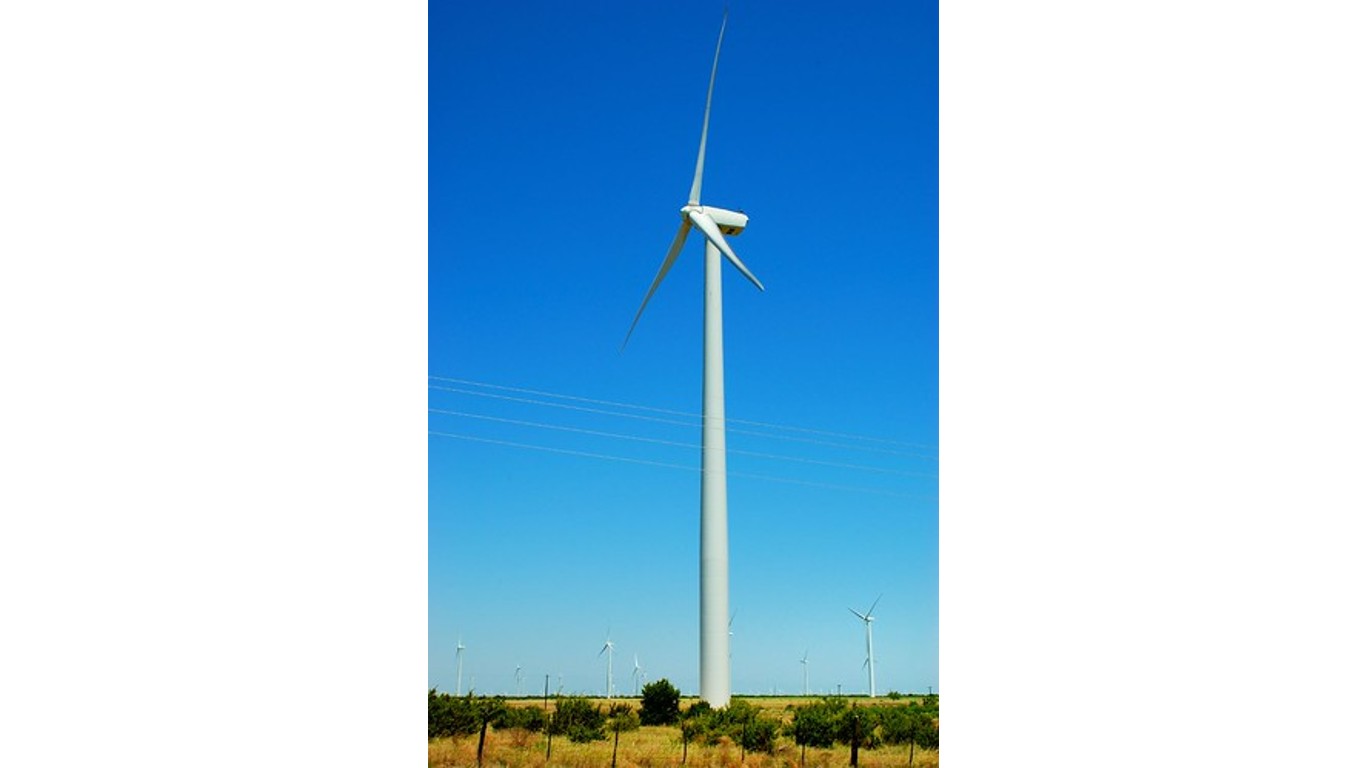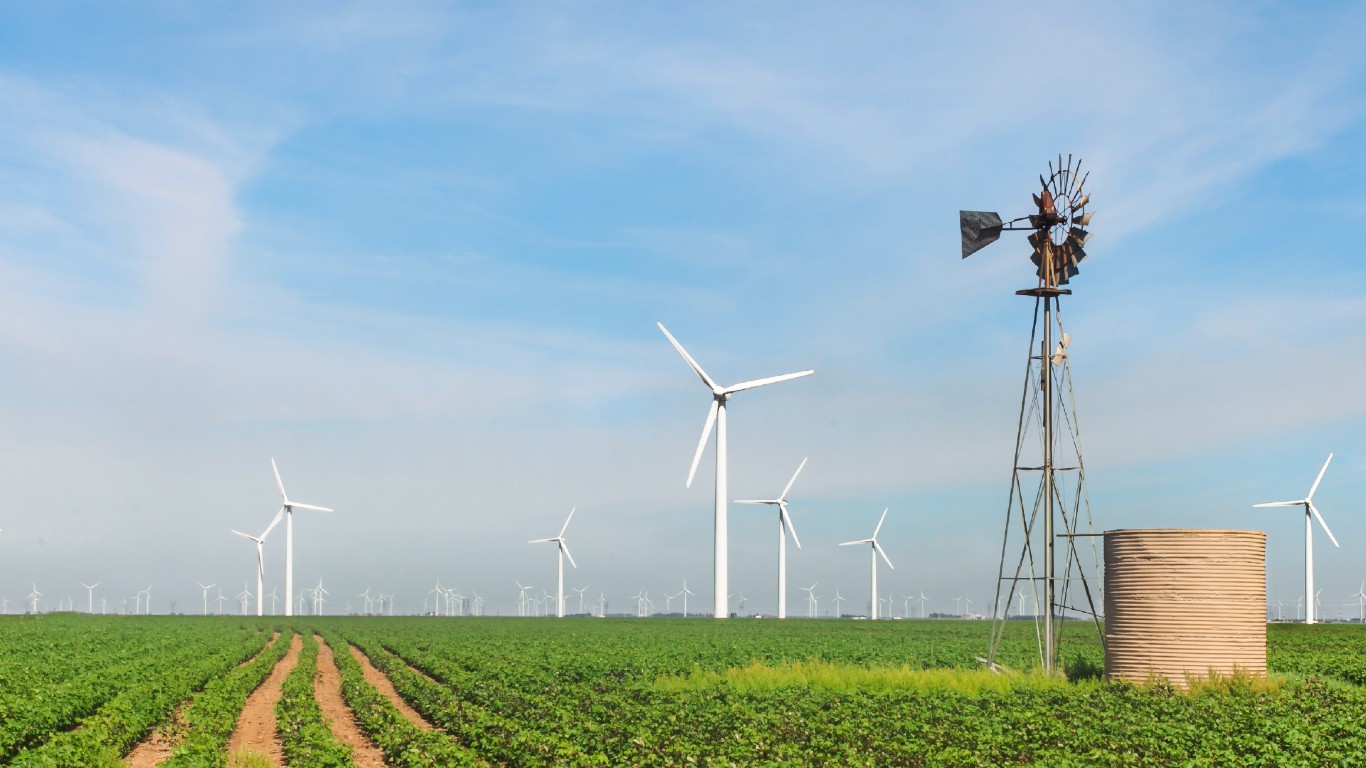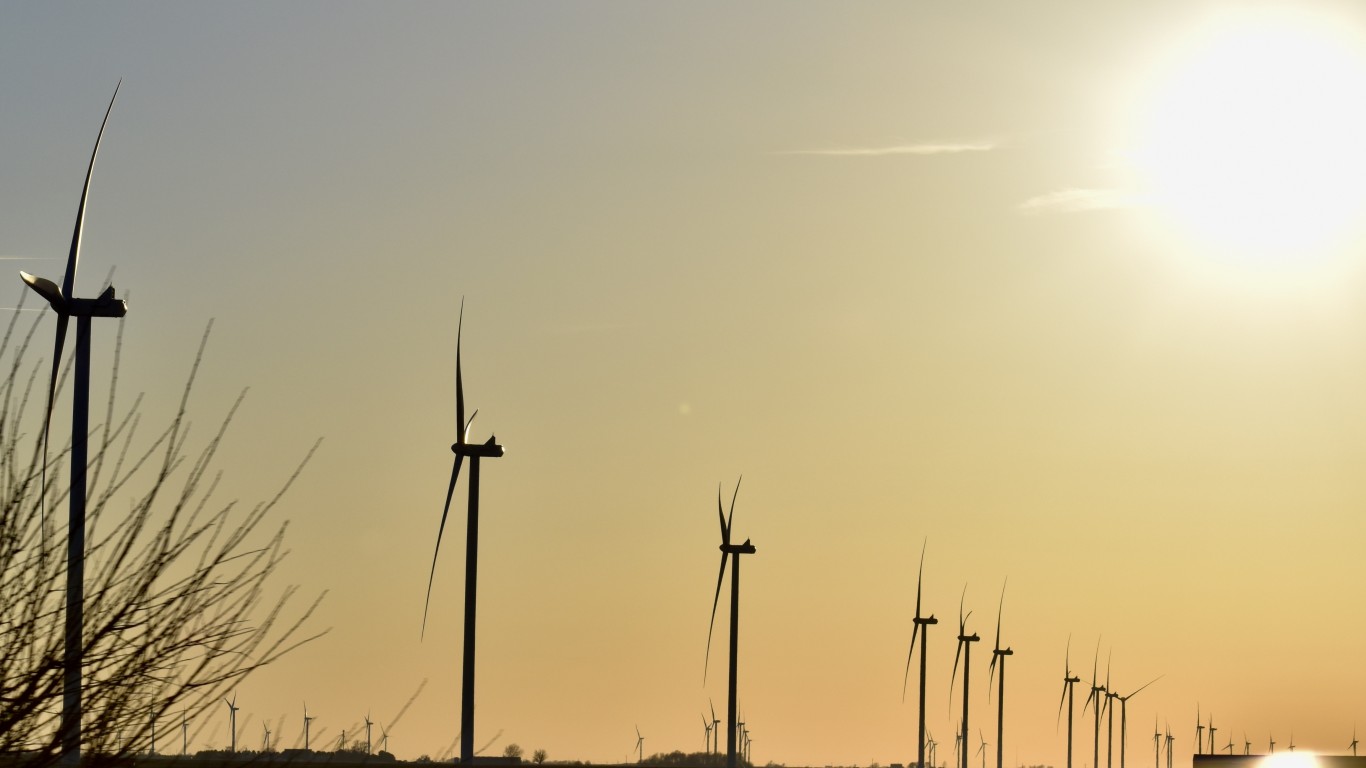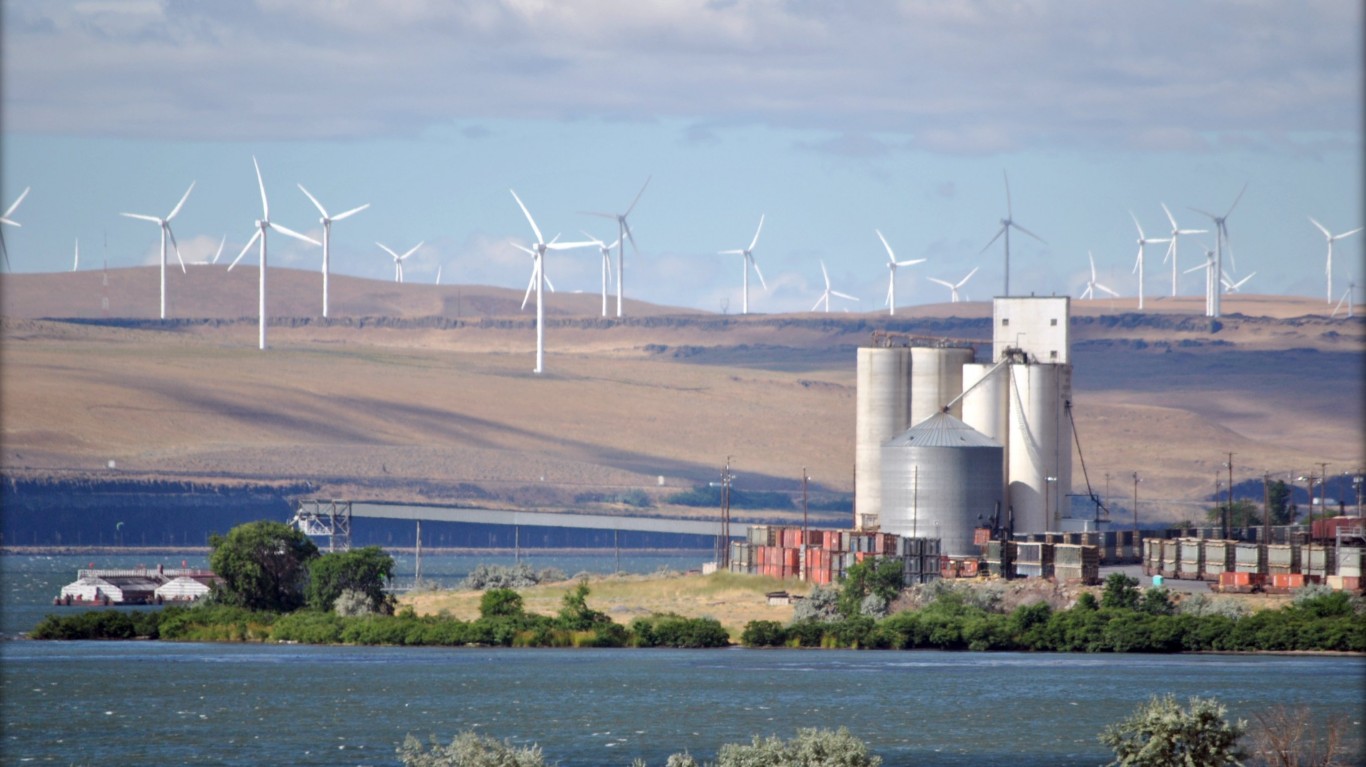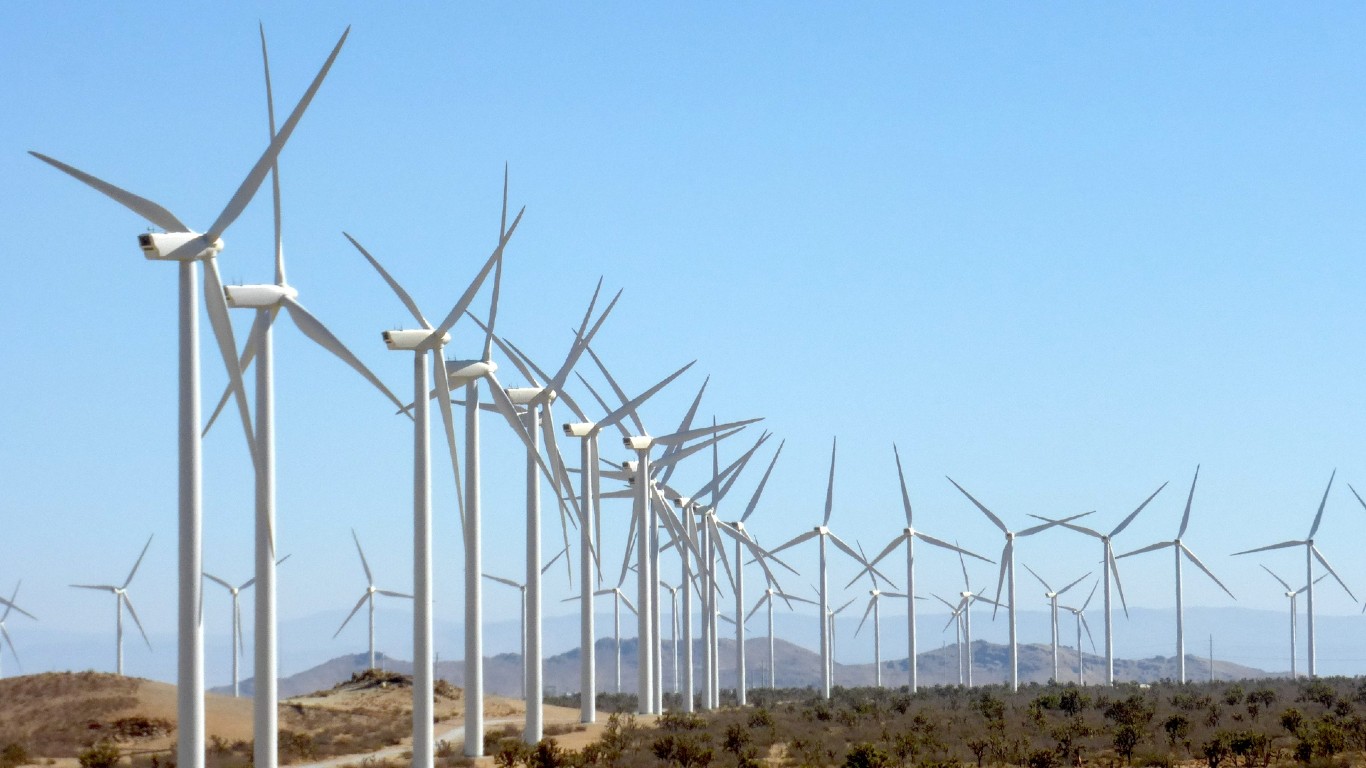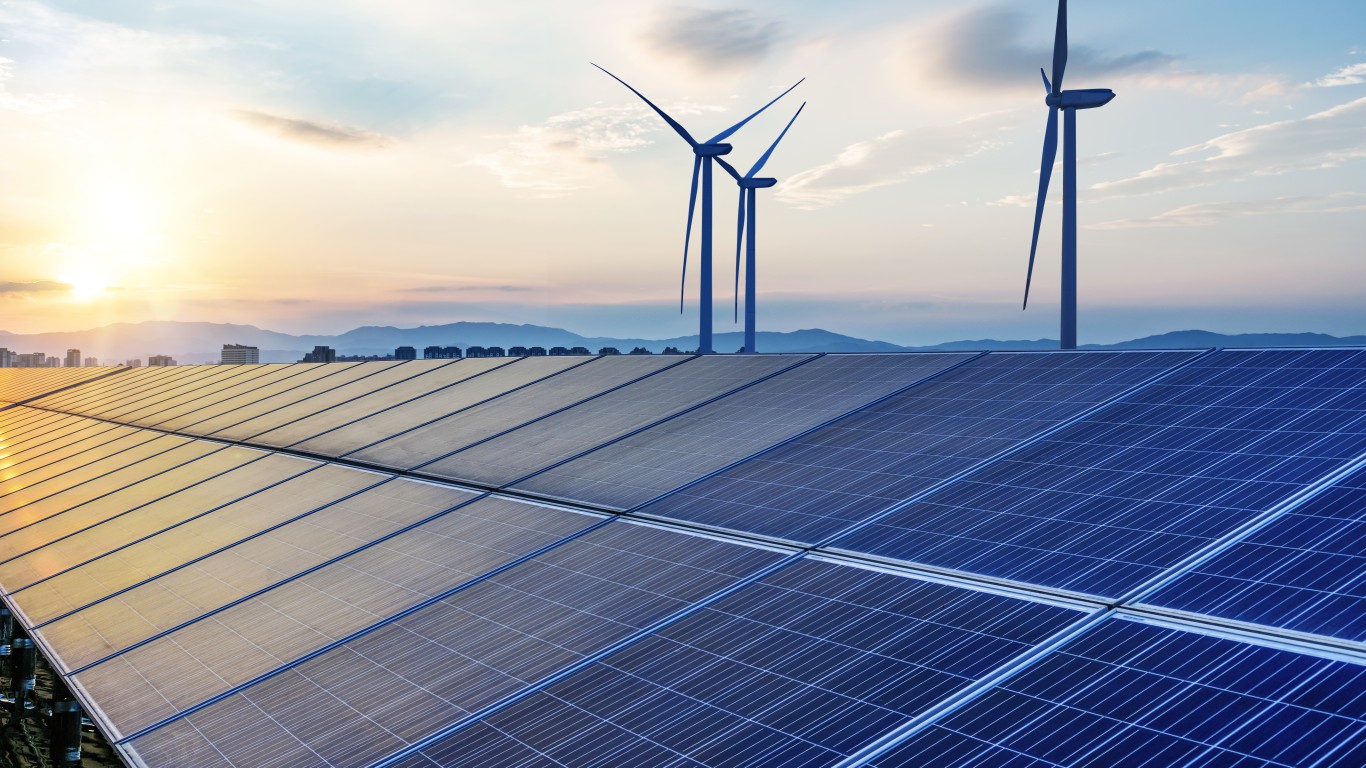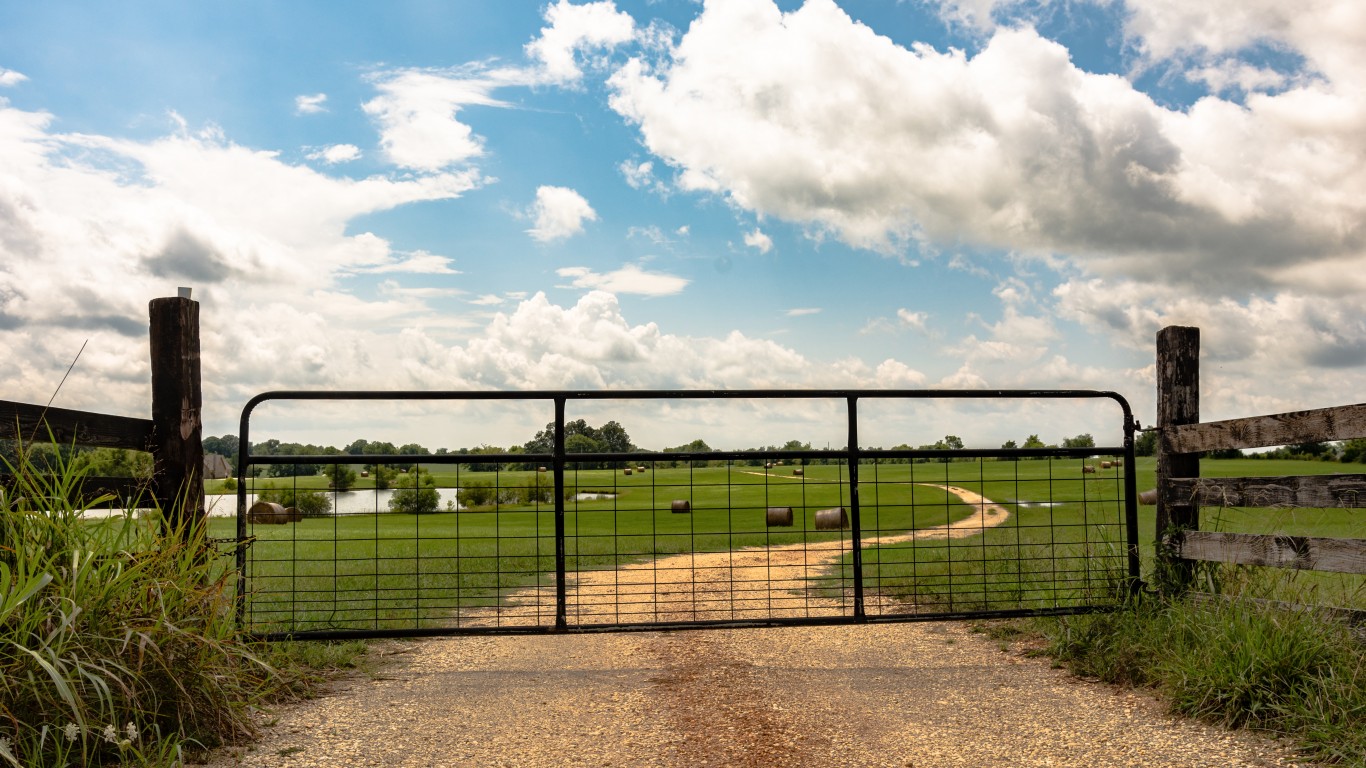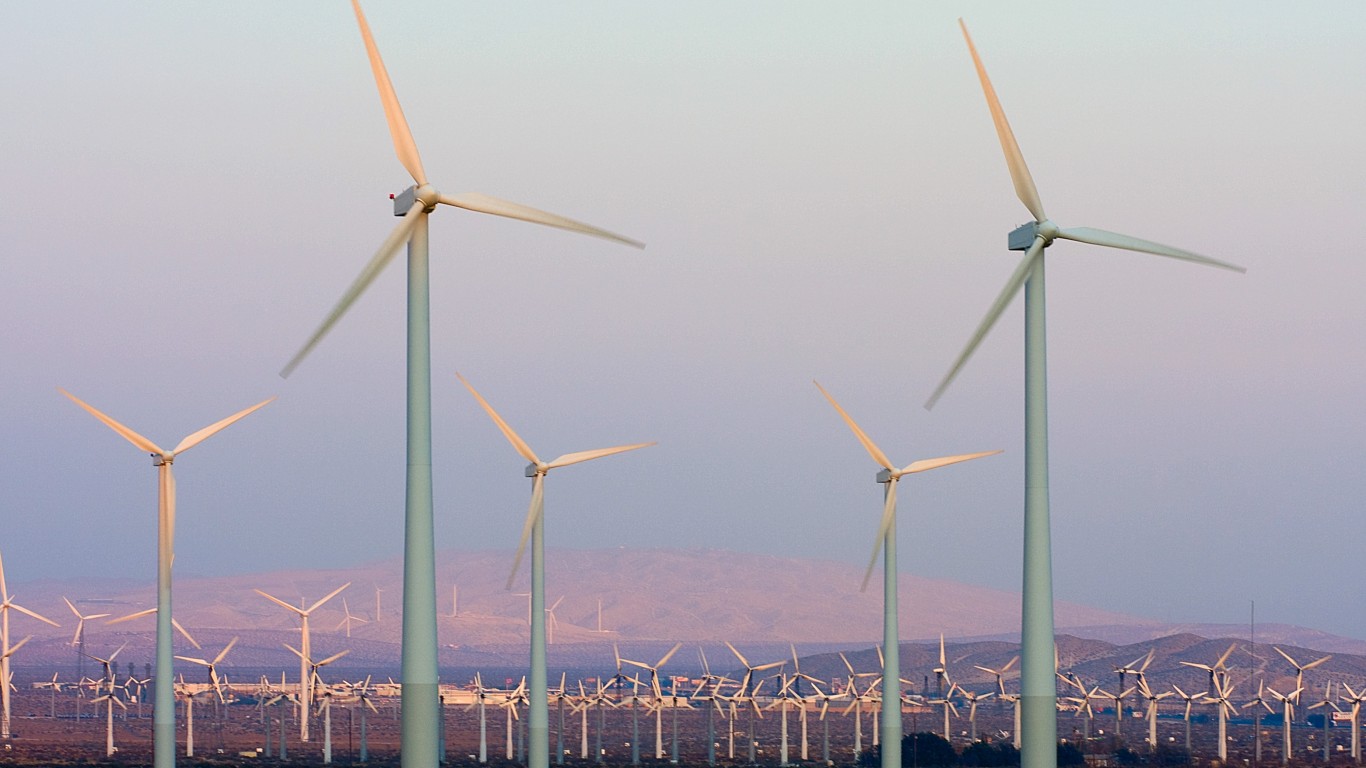
The power of the wind has been harnessed for millennia and began to be used for electricity generation in the late 1800s and early 1900s before the advent of rural electrification. The oil shortages of the 1970s sparked a comeback. Small power-generating windmills, called turbines, were constructed as something of a novelty, usually designed to support a single business or facility.
Later, these windmills inspired both awe and outrage as groups of them began to appear on the landscape in the 1980s and 1990s. As the technology grew, spurred by government incentives and clean energy requirements, the turbine’s novelty and its resemblance to an old style windmill disappeared. Wingspans grew to the length of football fields, and wind power facilities became “farms,” covering thousands of acres across hills and prairies. (Find out if wind farm jobs are among the fastest growing and shrinking clean energy jobs.)
To identify the 48 largest wind farms in the United States, 24/7 Wall St. used a variety of internet sources, including Wikipedia, to find the wind farms with the largest installed capacity in MegaWatts.
Wind generated power is now growing exponentially in order to meet climate change commitments. In the last two decades, electricity generation from wind power grew from 6 billion kilowatt hours to 380 kWh. In 2020 alone, wind power helped avoid 319 million metric tons of CO2, enough to power 42 million homes. (Conversely, these are the 25 countries increasing emissions the fastest.)
Today, wind is the largest source of renewable energy in America, providing 9.2% of the country’s utility-scale power. In eight states, wind provides over 25% of the energy generated.
These are the largest wind farms in the country
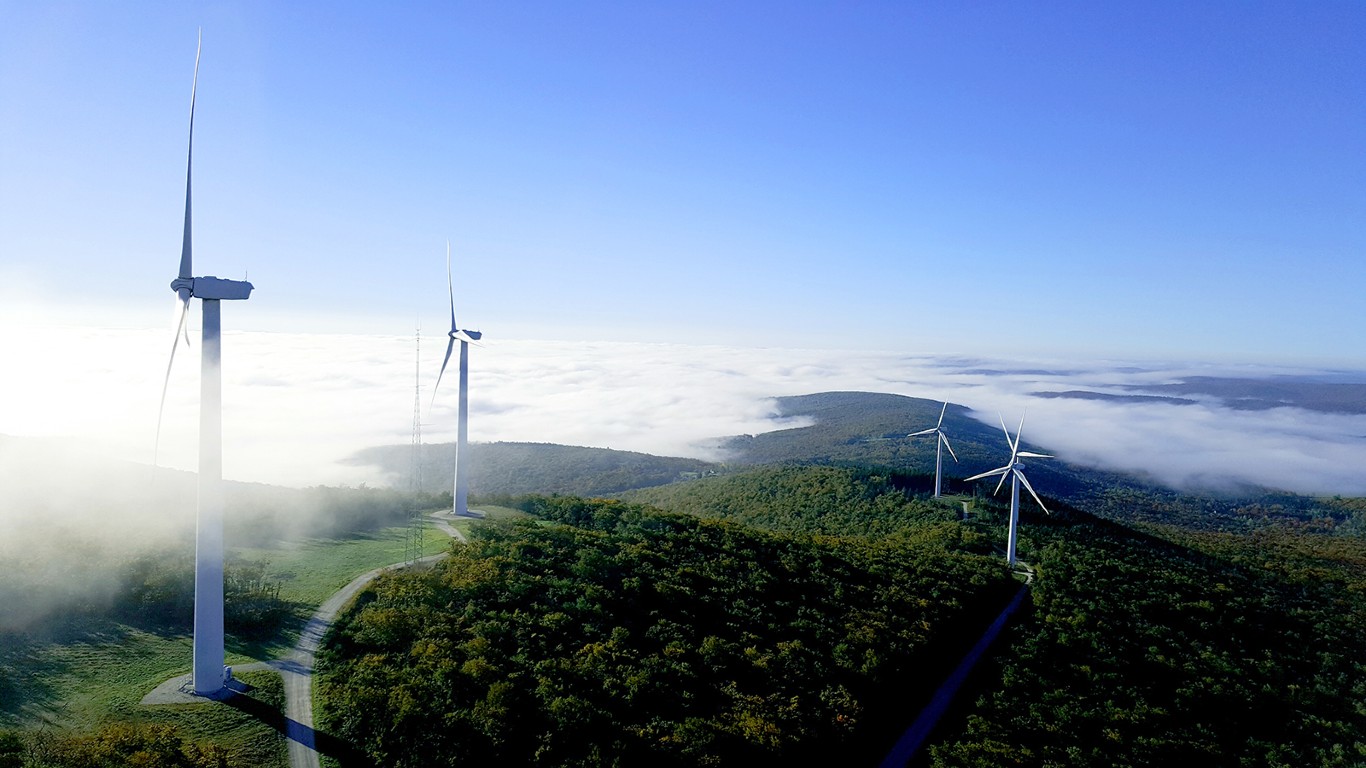
48. Blue Creek Wind Farm
> Installed capacity, in megawatts: 302
> State: Ohio
Upon its completion in 2012, the Blue Creek Wind Farm became the largest wind power facility in Ohio, spread over 40,500 acres of land in the northwestern corner of the state. The wind farm employed 500 people during construction. It creates enough electricity to power the equivalent of 76,000 homes.
[in-text-ad]
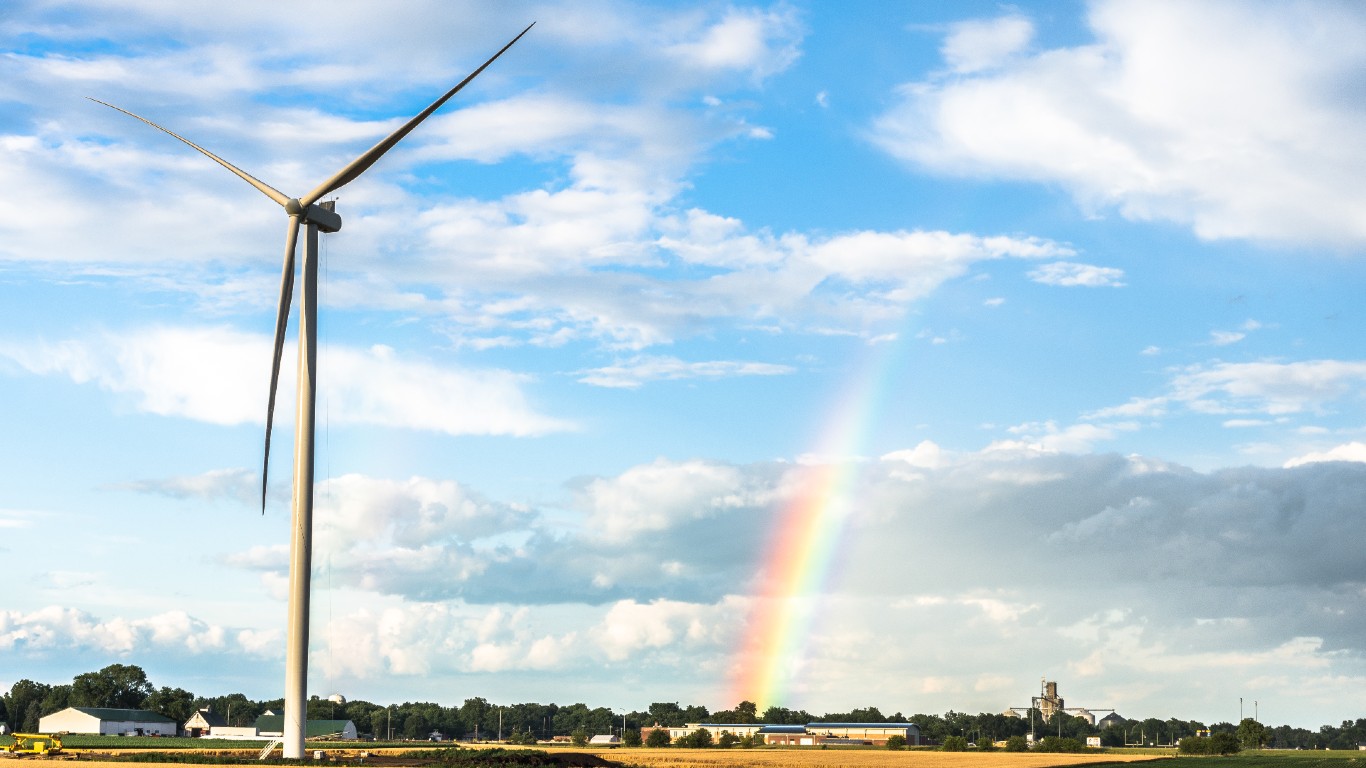
47. Radford’s Run Wind Farm
> Installed capacity, in megawatts: 306
> State: Illinois
Radford’s Run was the largest single phase wind farm built in Illinois and the largest wind farm built in the U.S. in 2017. It is considered an economic boon for Macon County and the surrounding communities in the central part of the state. Some $55 million was spent during construction, and 80 miles of roads were upgraded.
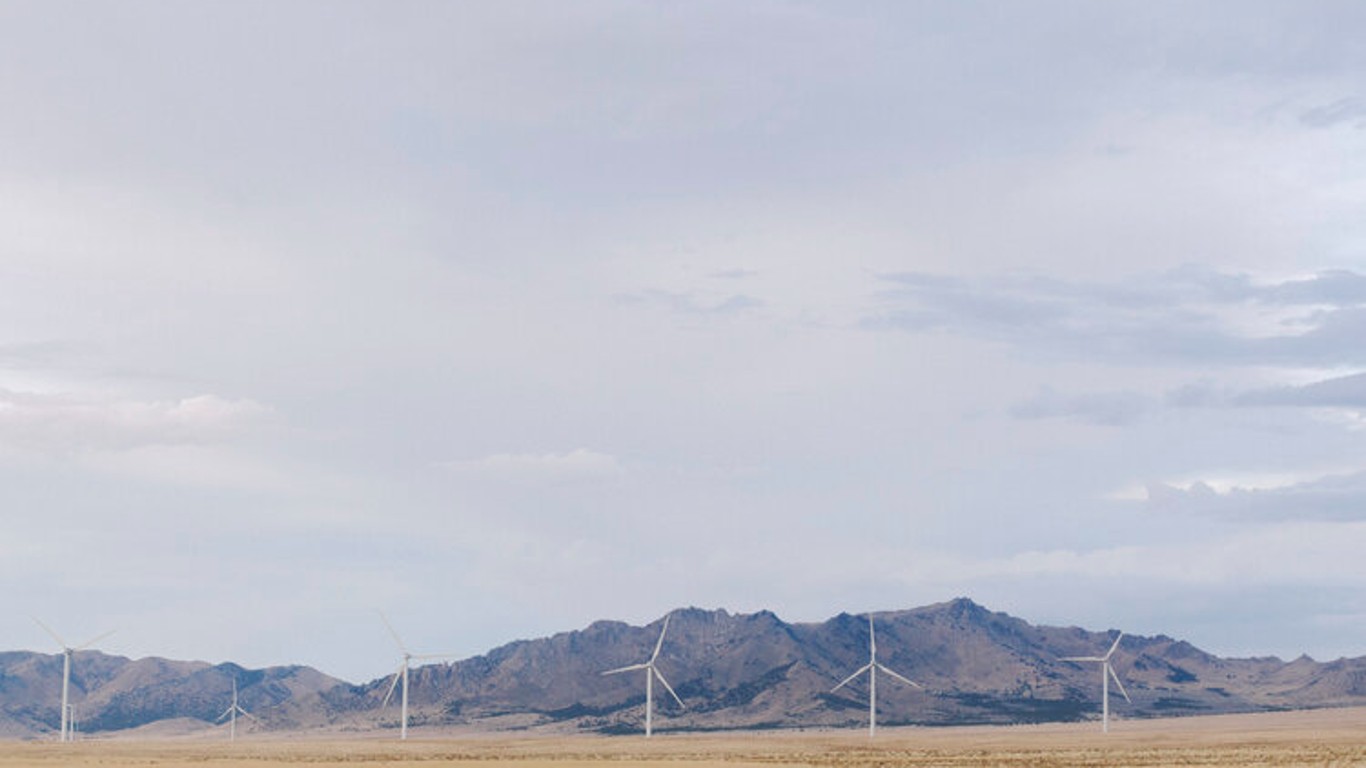
46. Milford Wind Corridor Project
> Installed capacity, in megawatts: 306
> State: Utah
Located near Milford, a city of just 2,400 residents in western Utah, the Milford Wind Corridor Project was built in two phases between 2008 and 2011. It became the largest wind farm in Utah upon completion of its first phase, which included 97 of its total 165 turbines.
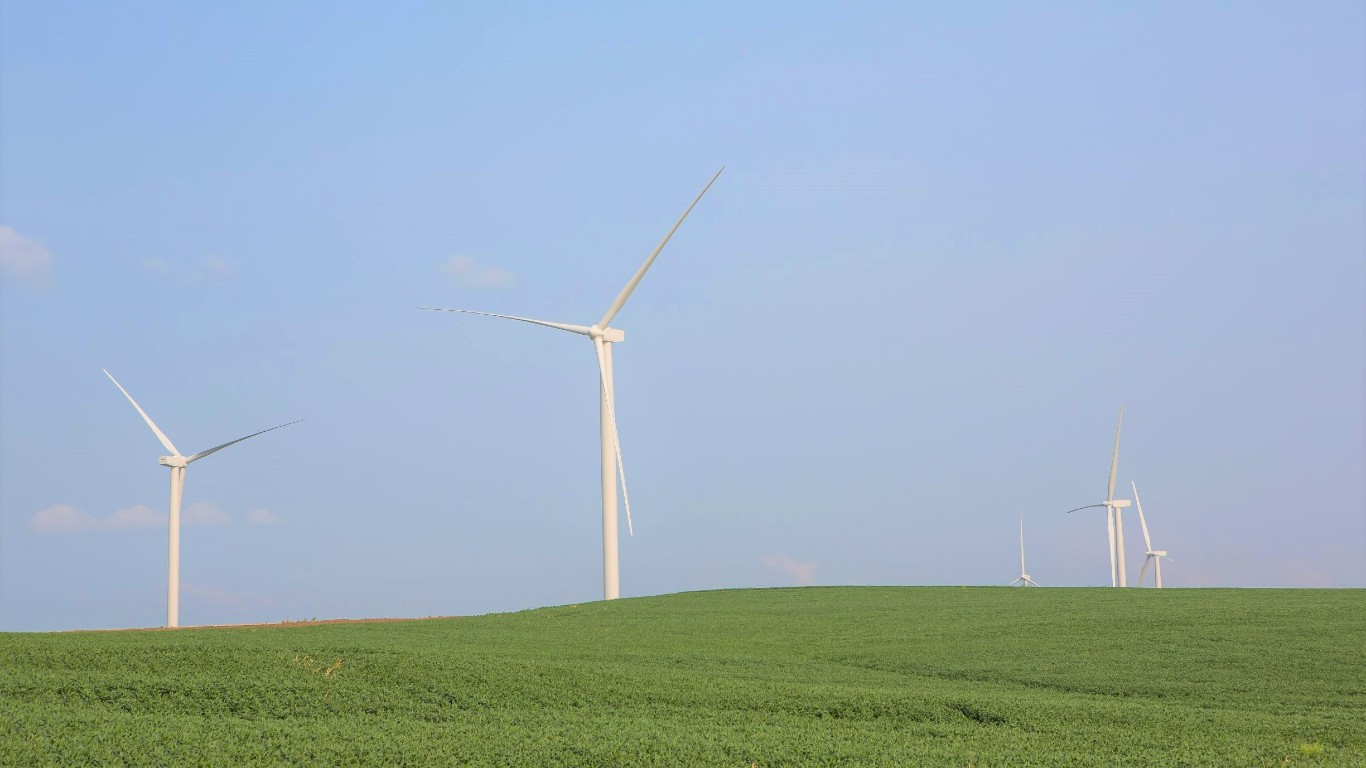
45. Rattlesnake Creek Wind Farm
> Installed capacity, in megawatts: 318
> State: Nebraska
The second largest wind farm in Nebraska, the Rattlesnake Creek Wind Farm was completed in 2018. Its construction cost $420 million. Its 101 turbines help avoid the emission of 940,000 tons of CO2 each year. This is the equivalent of removing 200,000 cars with gas combustion engines from the road.
[in-text-ad-2]
44. Maple Ridge Wind Farms I & II
> Installed capacity, in megawatts: 322
> State: New York
High on a plateau in northern New York, the Maple Ridge Wind Farms benefit from strong “lake effect” winds that blow over the area from Lake Ontario. The largest wind farm in New York was completed in 2006. With 130 feet blades on 260 foot towers, its 195 Danish-made turbines have the capacity to produce 322 MW of electricity.
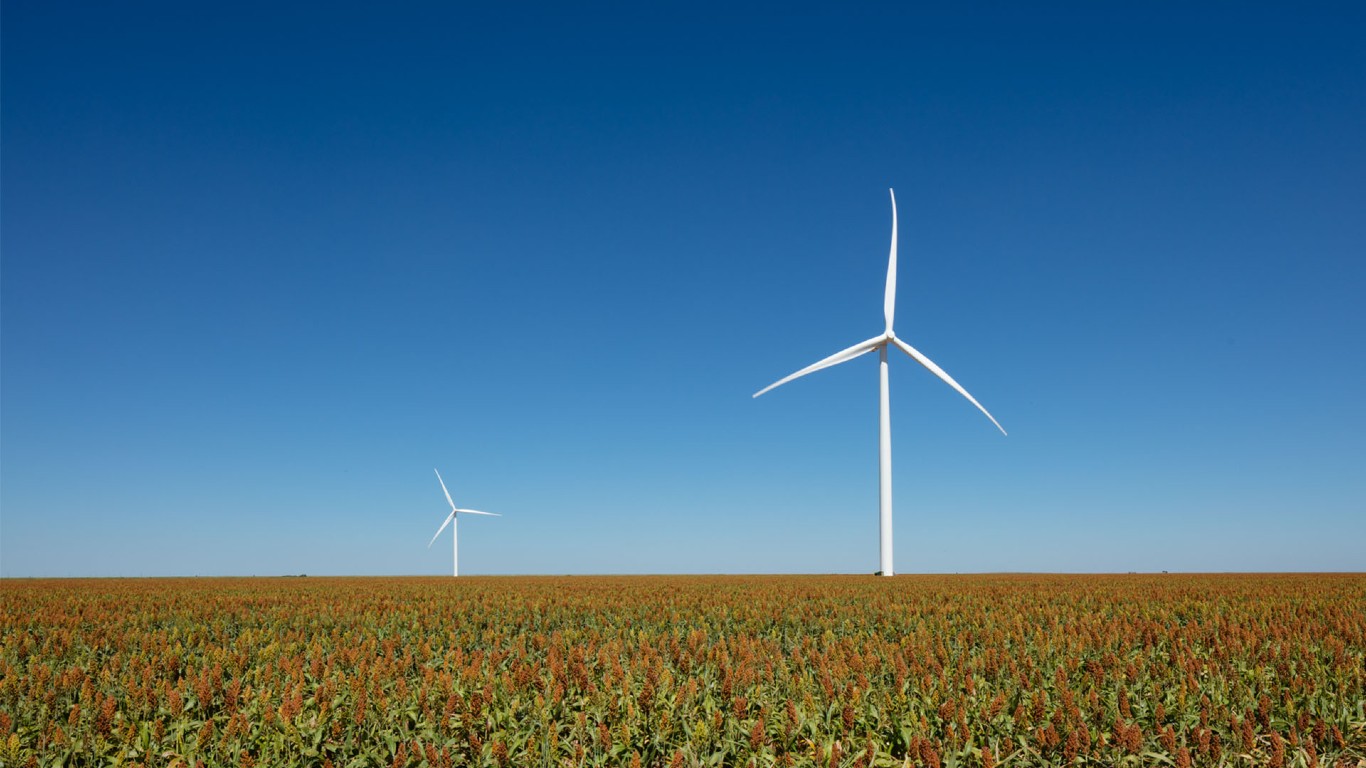
43. Broadview Energy Wind
> Installed capacity, in megawatts: 324
> State: New Mexico
On the border between Texas and New Mexico, Broadview Energy Wind is the largest clean energy facility in New Mexico. The wind farm created 650 jobs during construction and employs 18 full-time workers for ongoing operations. Its 181 turbines supply energy to California consumers.
[in-text-ad]
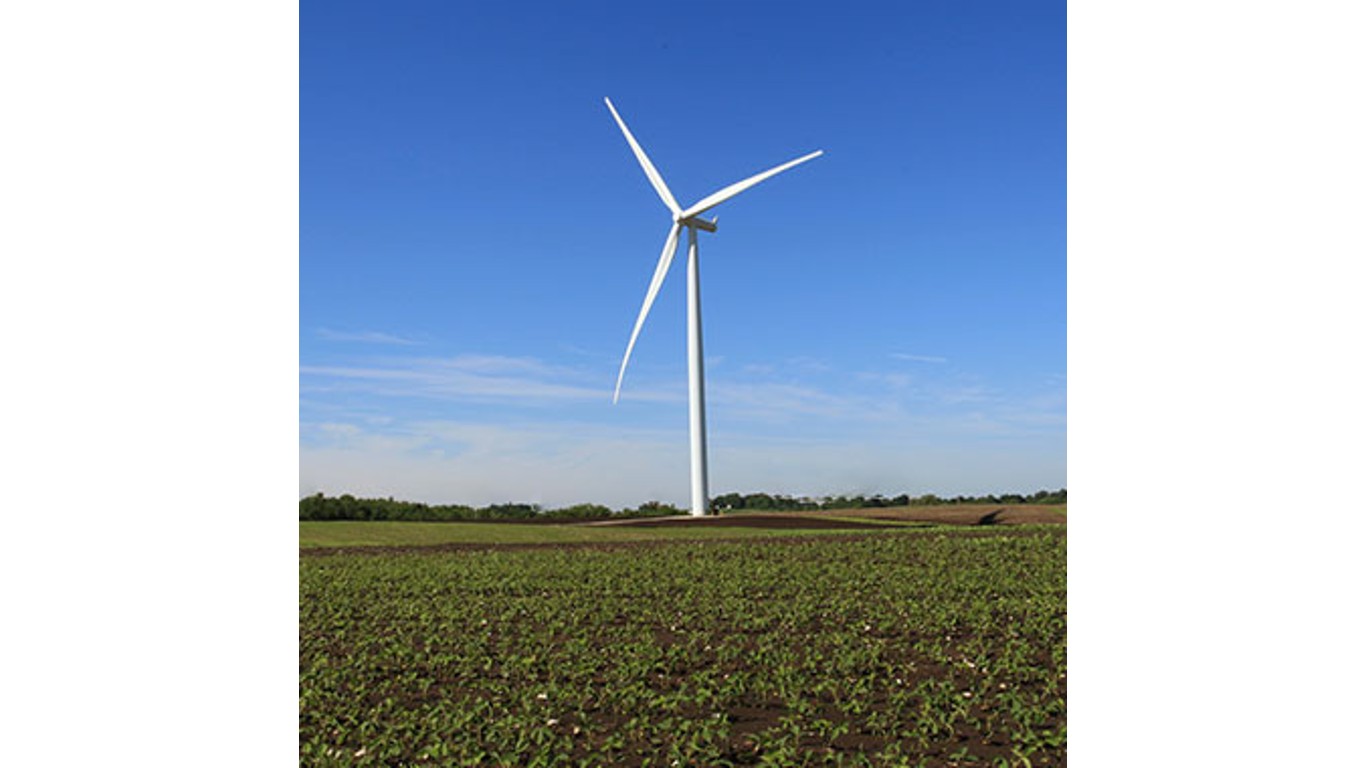
42. Beaver Creek Wind Farm I & II
> Installed capacity, in megawatts: 340
> State: Iowa
Wind power in Iowa was jump started by a 1983 state law requiring the utility industry to acquire 140 MW of electricity from wind. As of 2021, Iowa power supply was made up of 55% wind, totalling 10,951 MW generated from 5,590 turbines. Commissioned in 2017, Beaver Creek Wind Farm provides 340 MW of that capacity.
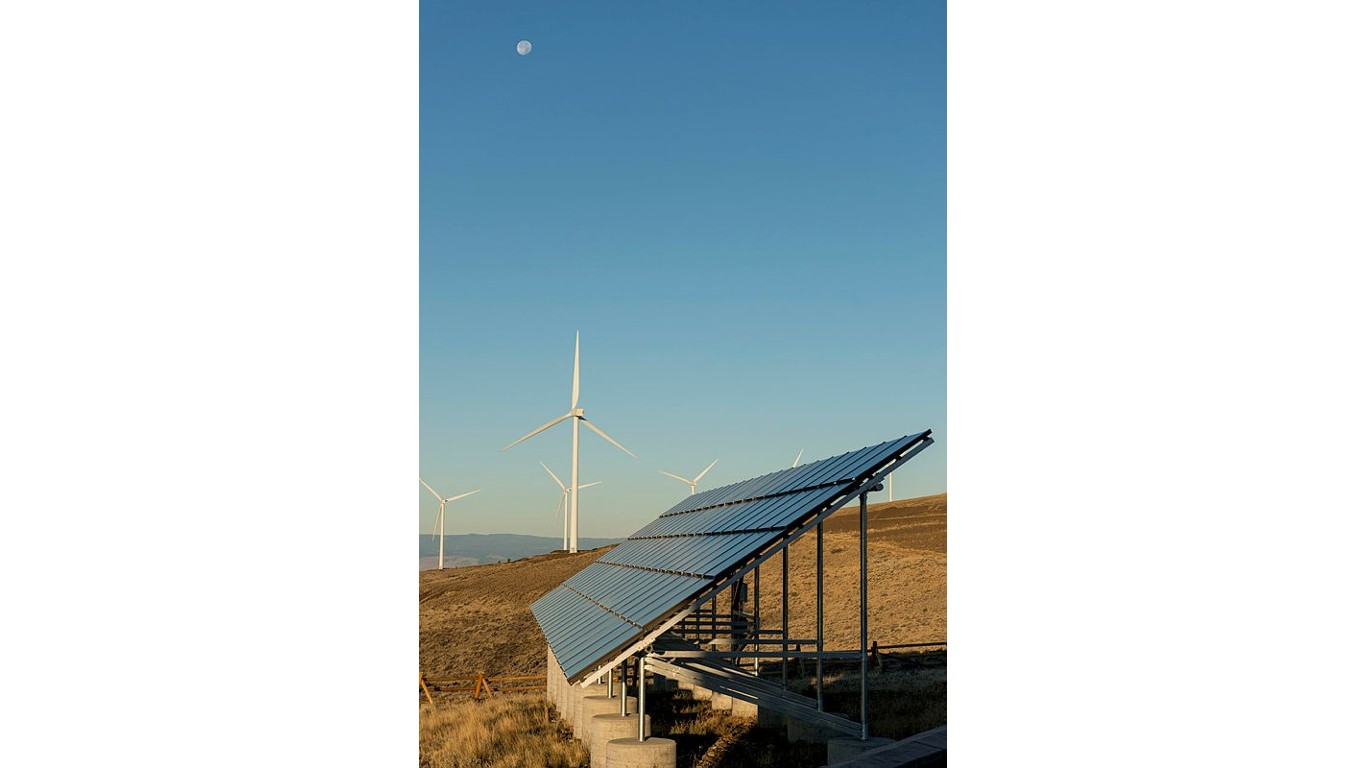
41. Lower Snake River Wind Project
> Installed capacity, in megawatts: 343
> State: Washington
Spread over 21,000 acres in southwestern Washington state, the Lower Snake River Wind Project was completed in 2012. With 149 Turbines and a capacity of 343 MW, it is the second largest wind facility in the state.
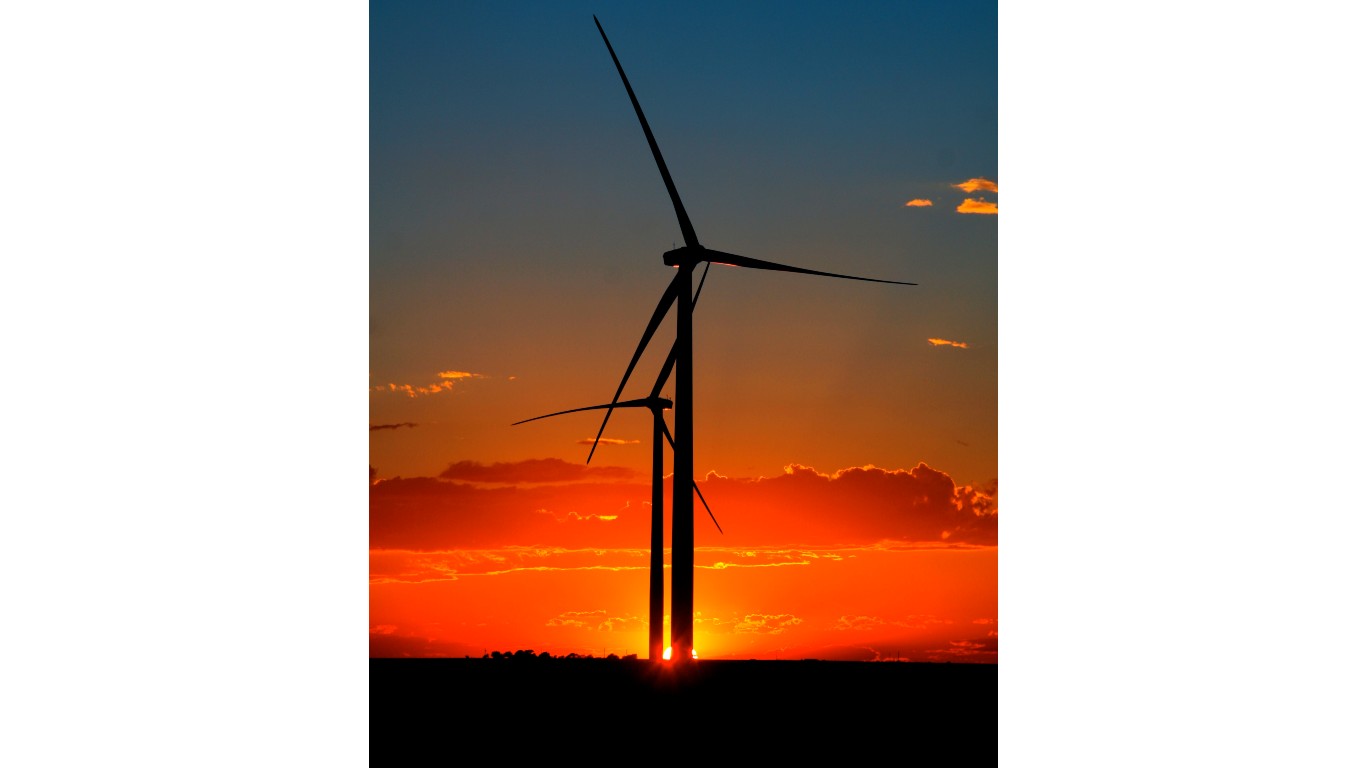
40. Stephens Ranch Wind Farm
> Installed capacity, in megawatts: 376
> State: Texas
Texas is the windpower capital of the U.S., providing more wind energy than the wind power output of any country in the world except China, the U.S., Germany, and India. It hosts 150 wind generation facilities, including the Stephen Ranch Wind Farm south of Lubbock, the 15th largest in the state.
[in-text-ad-2]
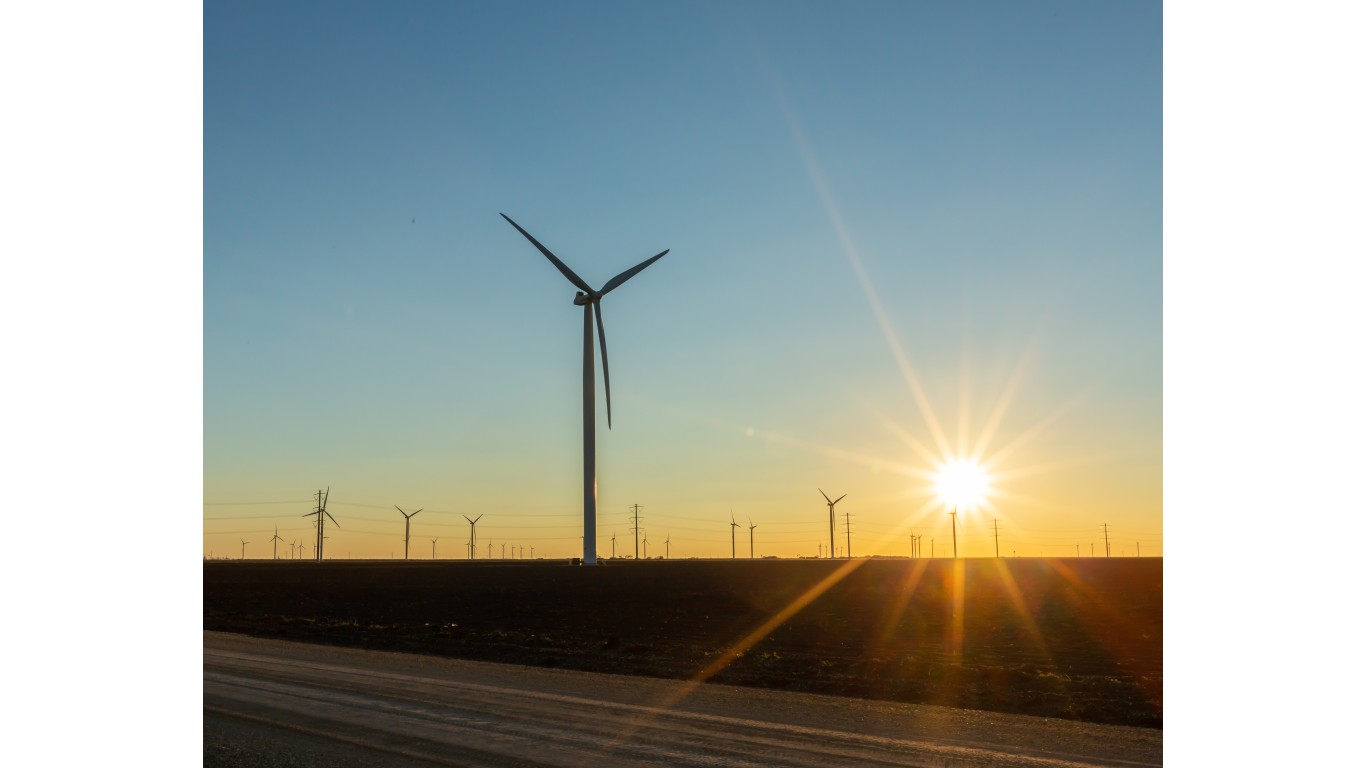
39. Papalote Creek Wind Farm
> Installed capacity, in megawatts: 380
> State: Texas
Completed in 2010, the Papalote Creek Wind Farm provides power to over 200,000 homes. It is located in southern Texas, 30 miles north of Corpus Christi and 20 miles from where Hurricane Harvey made landfall in 2017, downing power lines with 90 mile winds. The wind farm was able to continue operating within a few days.
38. Twin Groves Wind Farms I & II
> Installed capacity, in megawatts: 396
> State: Illinois
Like other wind farms across the country, the Twin Groves Wind Farm in eastern Illinois, west of Bloomington Indiana, is an economic engine for the local communities. Landowners receive lease payments of $5,000 per year for each turbine constructed on their property. There are 240 turbines on the farm.
[in-text-ad]
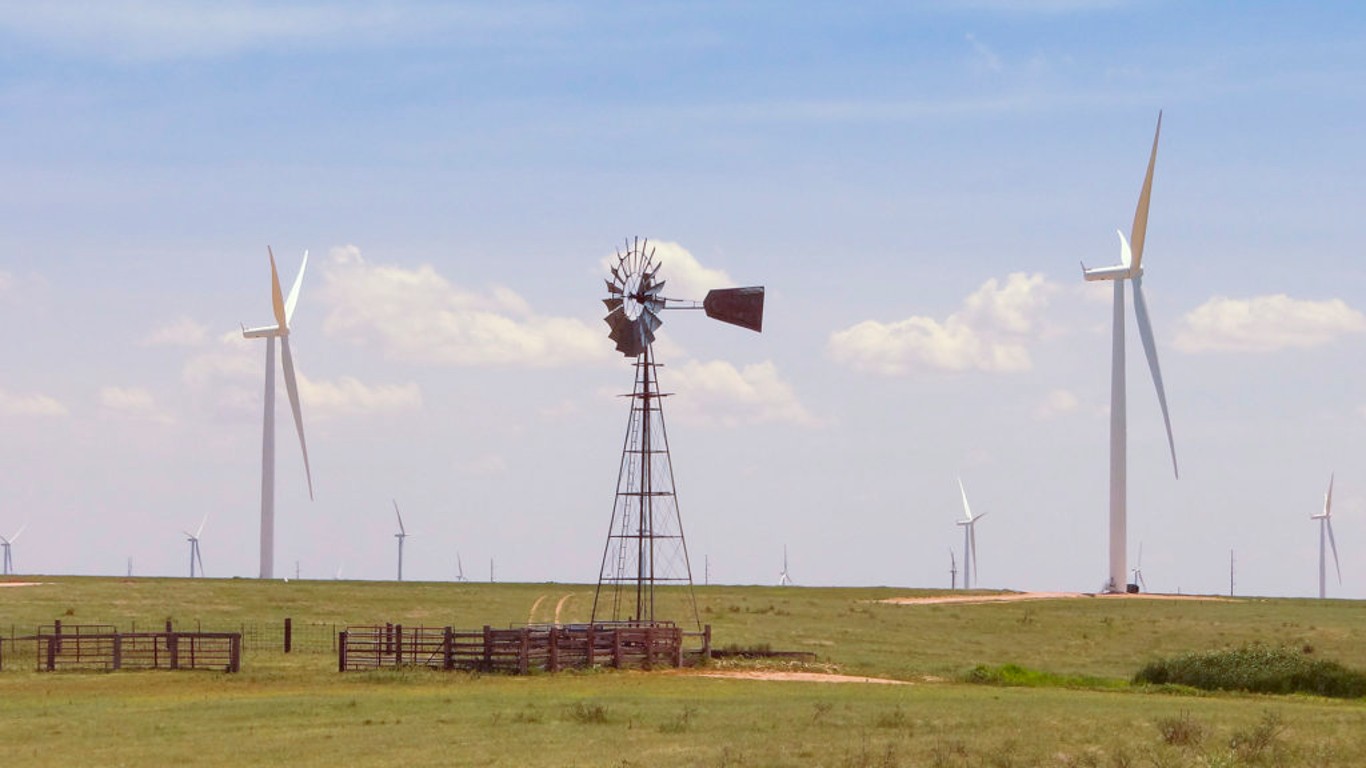
37. Panhandle Wind Farm (I & II)
> Installed capacity, in megawatts: 399
> State: Texas
In addition to avoiding millions of tons of carbon dioxide emission, wind generated power also conserves water, a particularly important contribution in the American West. The Panhandle Wind Farm, near Amarillo, Texas, conserves more than a billion gallons of water a year, equal to the amount of water needed by 20,000 people. It also claims to have brought many economic benefits to the community.
36. Windy Point/Windy Flats
> Installed capacity, in megawatts: 400
> State: Washington
The 176 turbines of the Windy Point/Windy Flats wind farm are built high on a ridge along 26 miles of the Columbia River in Washington state, covering 90 acres. Completed in 2009 with a 400 MW capacity, it is the largest wind generating facility in the state.
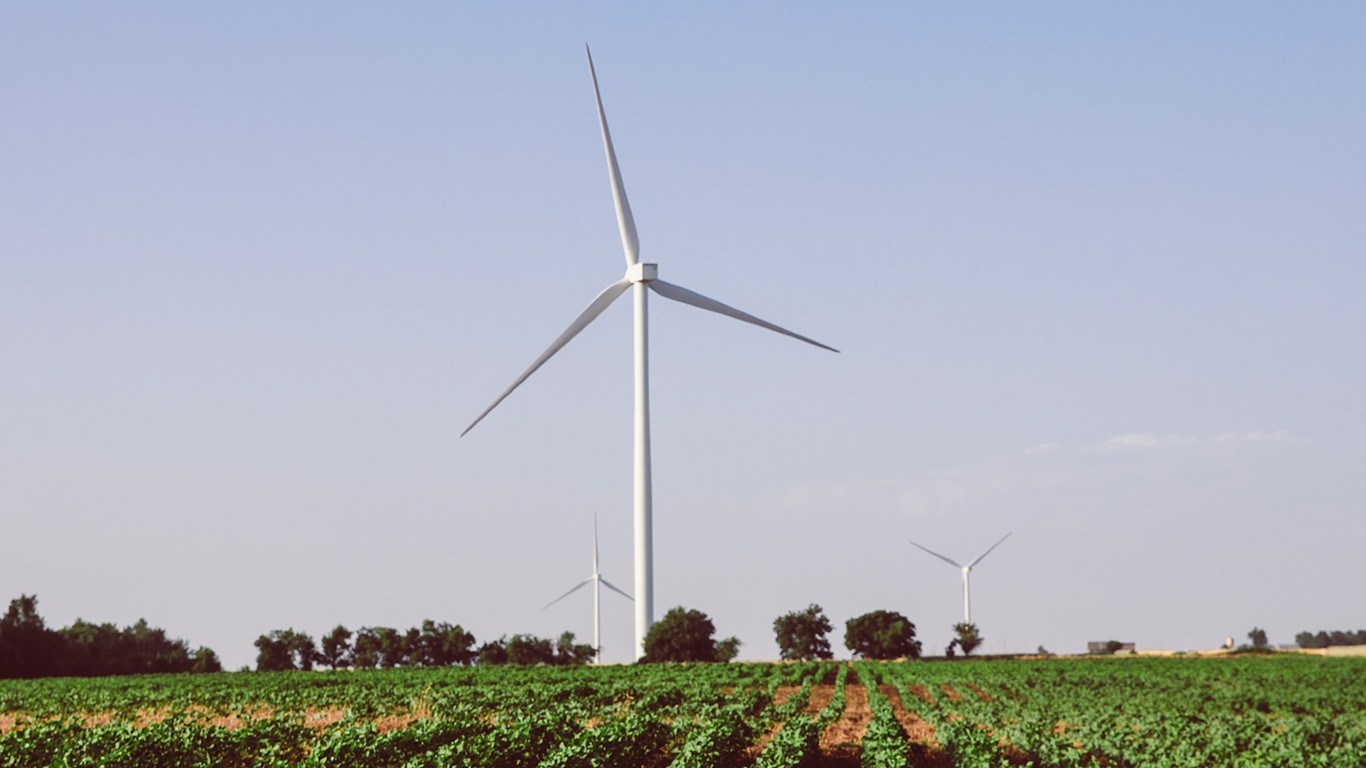
35. Lone Star Wind Farm
> Installed capacity, in megawatts: 400
> State: Texas
Only 15 miles from downtown Abilene, Texas, Lone Star Wind Farm was completed in 2008 at a cost of $880 million. Its 200 turbines produce enough energy to power 120,000 homes, and the fossil fuel it has replaced is equivalent to taking 90,000 cars off the road.
[in-text-ad-2]
34. Klondike Wind Farm
> Installed capacity, in megawatts: 400
> State: Oregon
The four phases of the Klondike Wind Farm were built between 2001 and 2008 along the Columbia River Gorge near the town of Wasco. Although the entire facility covers thousands of acres, only 2% of the land is actually taken out of service as farm and ranch land. The wind farm is also a testing ground for new technology, notably a 2.4 MW turbine from Japan with new safety features, including a resistance to lightning strikes.
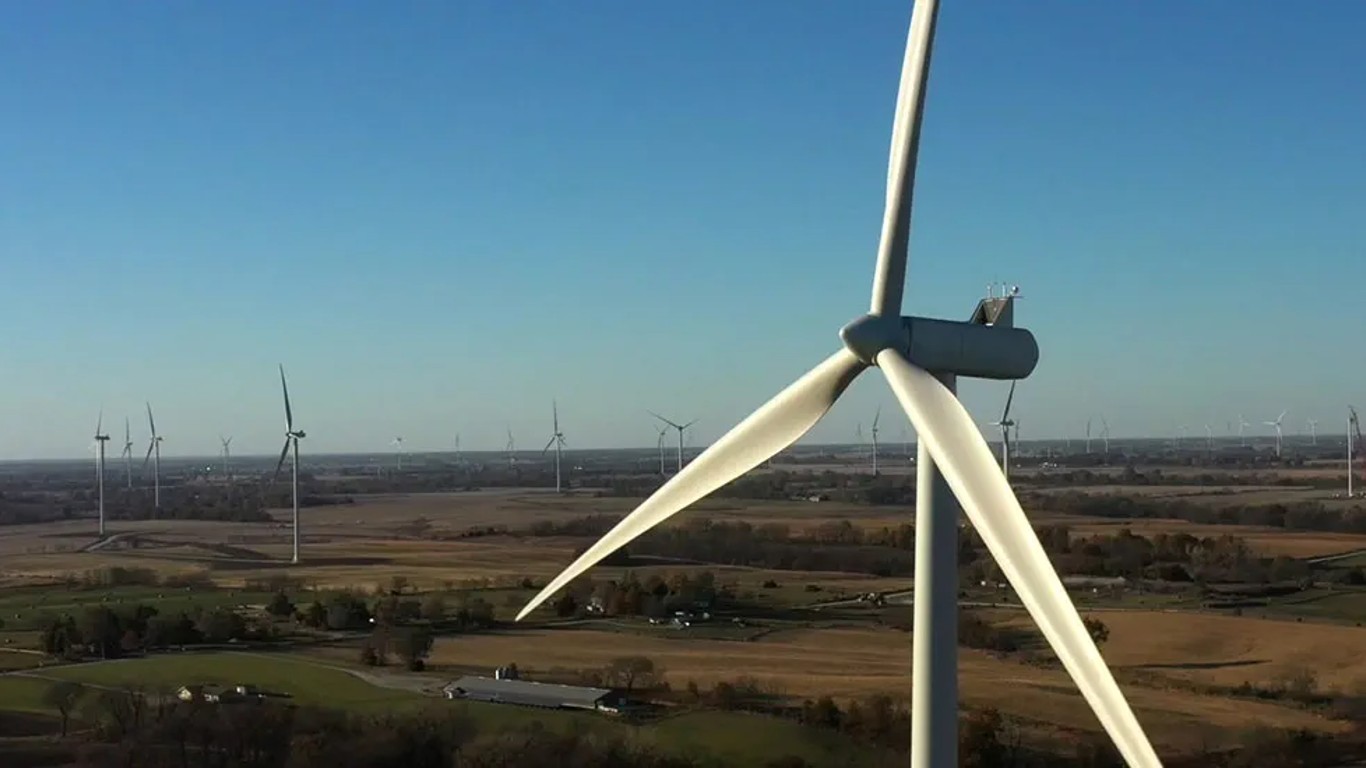
33. High Prairie Renewable Energy Center
> Installed capacity, in megawatts: 400
> State: Missouri
After only a few months of operation, Missouri’s largest wind farm, High Prairie Renewable Energy Center, ran into environmental trouble. Built in 2020, its 275, 92-foot turbines dot the landscape in two northern Missouri Counties, noted for its threatened bat populations. In the spring of 2021, several bats and a bald eagle were found on site, causing the entire facility to shut down at night. Despite the loss of revenue, controversy over a rate hike, and a question of whether Missouri can meet its renewable goals, the plant has continued to operate.
[in-text-ad]
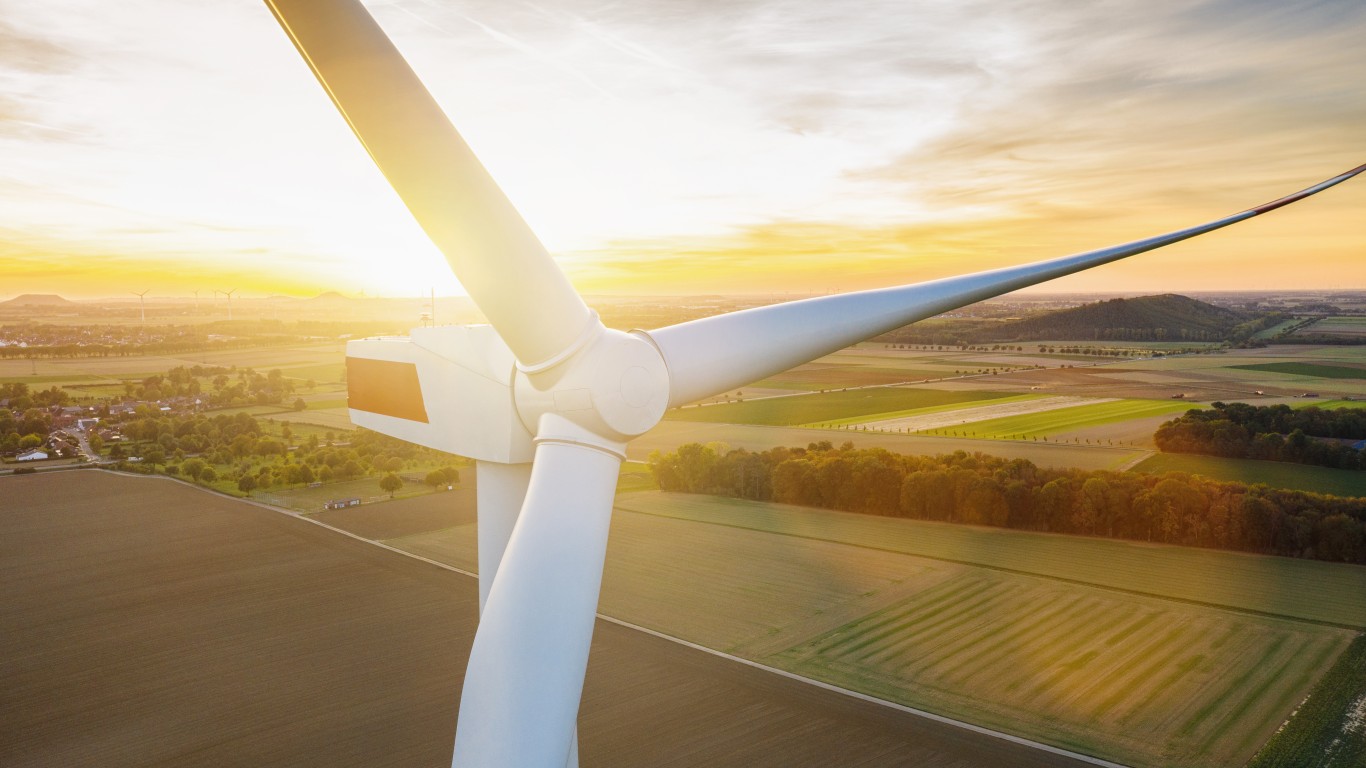
32. Grande Prairie Wind Farm
> Installed capacity, in megawatts: 400
> State: Nebraska
Construction of the 200 turbines of Grande Prairie Wind Farm was completed in 2016, increasing Nebraska’s wind power by 50% and making the farm the largest in the state. The turbine configuration was planned to reduce the impact on the host farm land, with tower placement in the corners of irrigation circles.
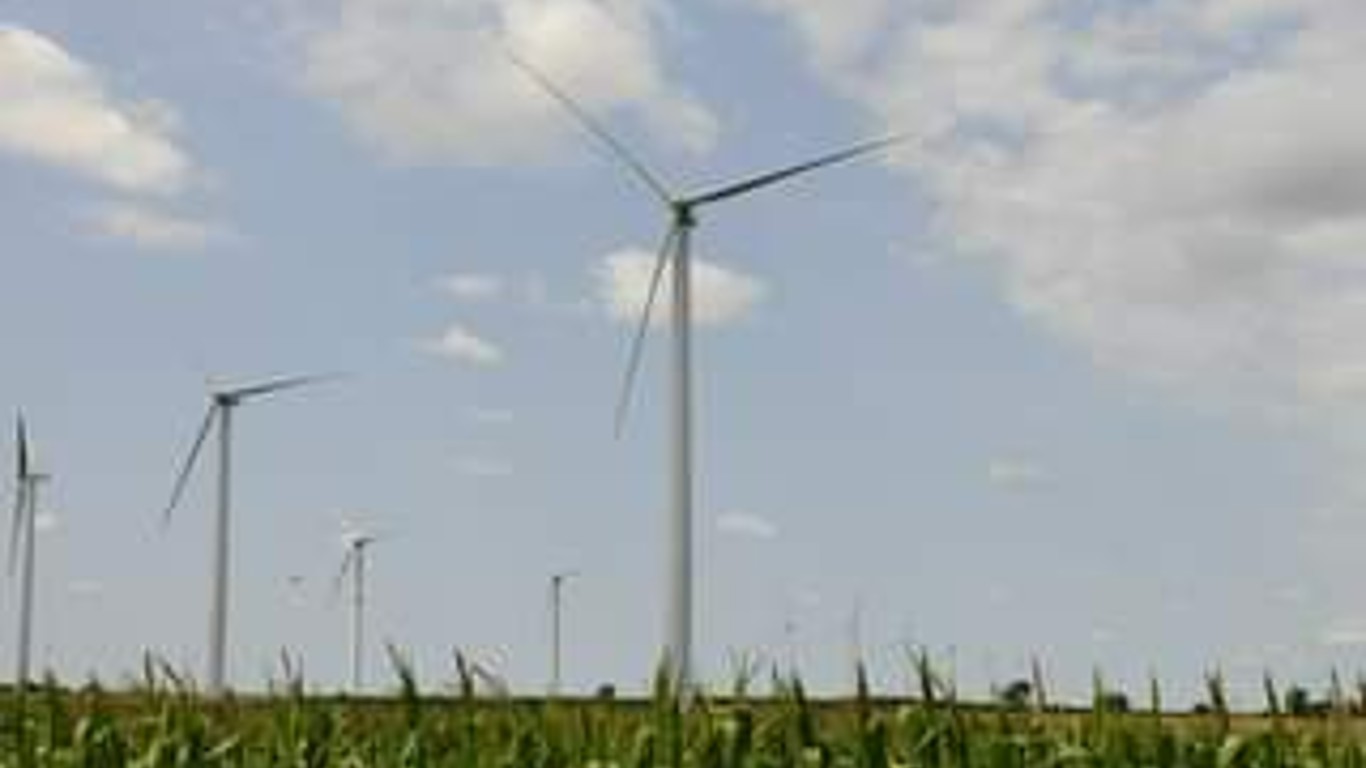
31. Crystal Lake Wind Farm
> Installed capacity, in megawatts: 416
> State: Iowa
Spurred by State laws calling for the development of renewable energy, the Crystal Lake Wind farm was built in three phases, completed in 2008. As technology has advanced since then, the facility was due for an upgrade in 2019, which included the installation of longer blades on the site’s turbines, thereby increasing electrical output.
30. Blue Canyon Wind Farm
> Installed capacity, in megawatts: 423
> State: Oklahoma
Blue Canyon Wind Farm began operations in 2003 with 45 turbines producing 74 MW of electricity. It was expanded in three more phases to include 250 turbines with a capacity of 423 MW, at a total cost nearing $1 billion. Oklahoma’s largest wind generation facility had, by 2019, created 64 permanent jobs and paid $25.3 million to local landowners in lease payments.
[in-text-ad-2]
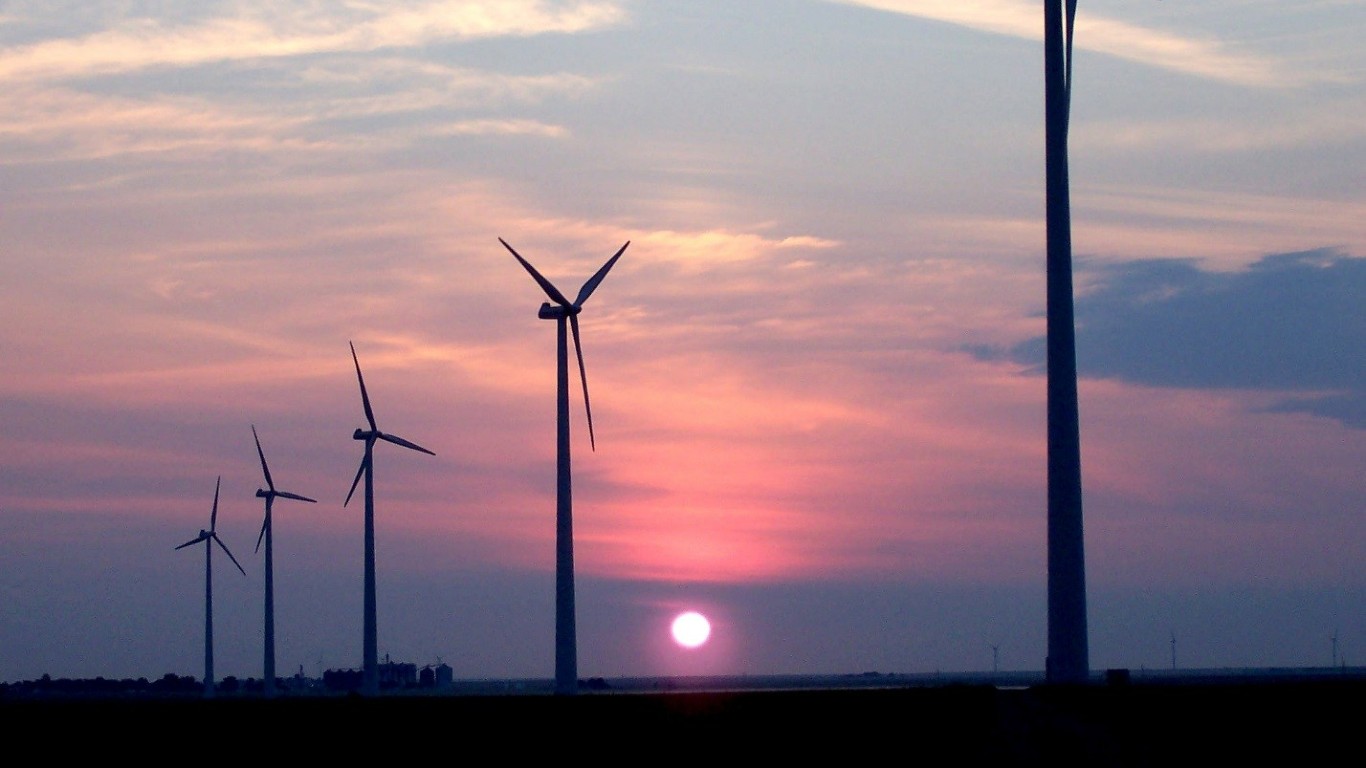
29. Peetz Table Wind Energy Center
> Installed capacity, in megawatts: 430
> State: Colorado
When the first phase of the Peetz Table Wind Energy Center was built in 2001, it was the largest wind generating facility in Colorado, with just 33 turbines capable of producing 29.7 MWs of electrical energy. The next phase was not built until 2007, when another 267 turbines filled the remainder of the Peetz Table, a plateau on the Colorado-Nebraska border, adding 400 MW to the state’s power mix.
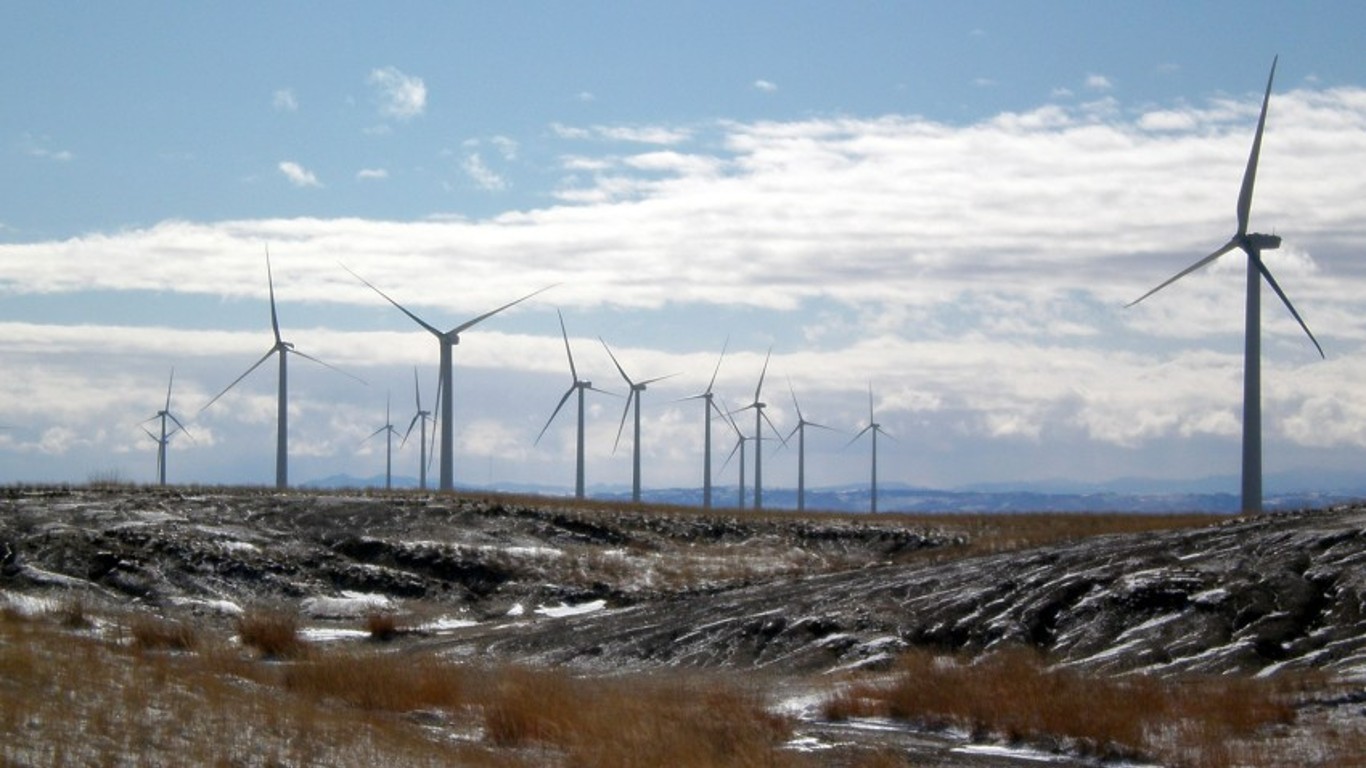
28. Rolling Hills Wind Farm
> Installed capacity, in megawatts: 444
> State: Iowa
When it was built in 2011, the Rolling Hills Wind Farm was the largest in Iowa, with 193 turbines. In 2019, Siemens Gamesa, which had already installed 10,000 turbines across the country, was awarded the contract for repowering the facility. The upgrade plan consists of the addition of 181 turbines and the replacement of blades and other key parts on existing units. This, the largest repowering project in North America, was set to begin at the end of 2021.
[in-text-ad]
27. Biglow Canyon Wind Farm
> Installed capacity, in megawatts: 450
> State: Oregon
Built in three phases between 2007 and 2010 along 25,000 acres above the Columbia River Gorge, the Biglow Canyon Wind Farm construction costs totaled $1 billion. It is the second largest wind generation facility in Oregon and produces enough energy to power 125,000 households.
26. Panther Creek Wind Farm
> Installed capacity, in megawatts: 458
> State: Texas
All three phases of the Panther Creek Wind Farm came on line in 2009, and in recent years, the first two phases have been repowered with critical upgrades. The wind farm repowered the third phase last year, with a looming upgrading problem solved – what to do with the replaced blades. The used blades will be employed in the manufacture of cement, with 90% of the blade material recycled in this way.
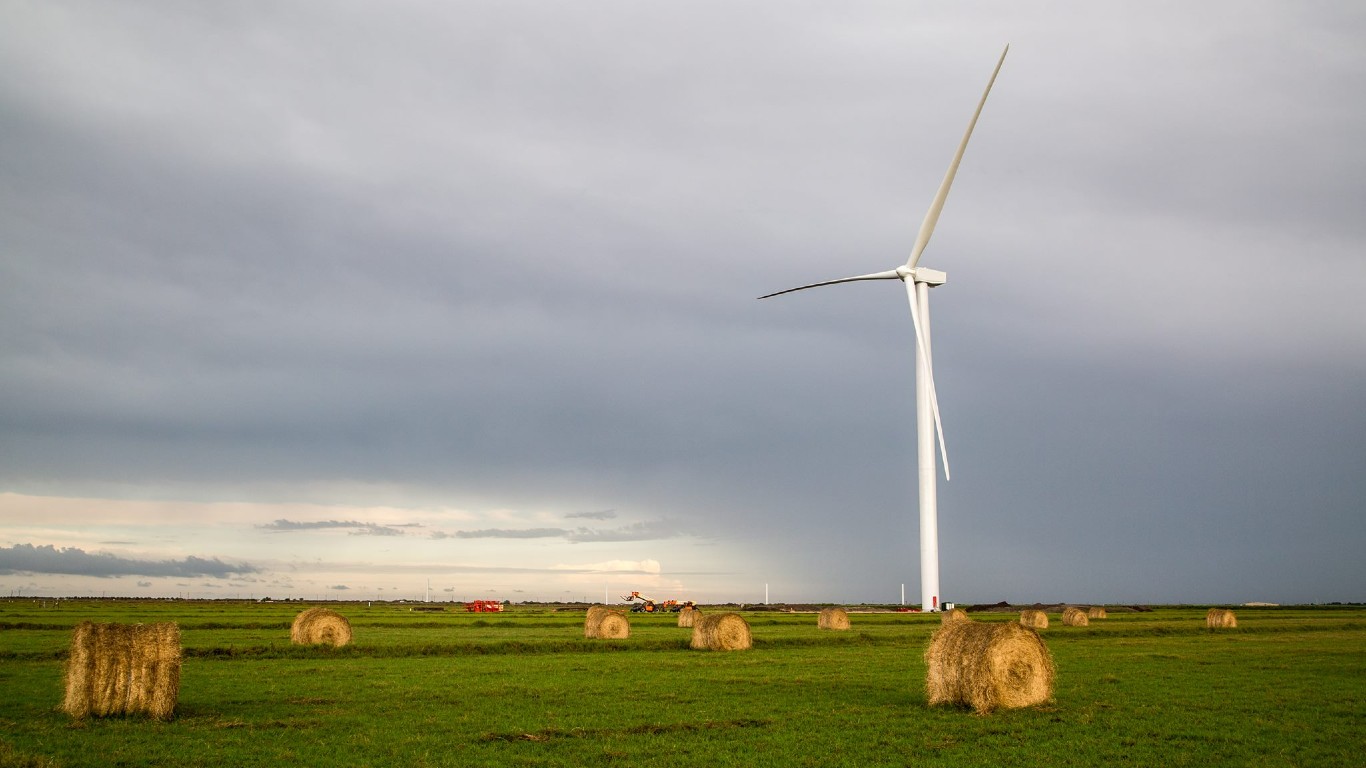
25. Bison Wind Energy Center
> Installed capacity, in megawatts: 497
> State: North Dakota
The Bison Wind Energy Center is North Dakota’s largest wind generation facility. It was built in four phases between 2012 and 2015. Because of continuing advances in technology and the development of more powerful generators, the fourth phase of the project is the most efficient, with 64 generators capable of producing the same amount of electricity as the 70 generators installed in phases two and three.
[in-text-ad-2]
24. South Plains Wind Farm I & II
> Installed capacity, in megawatts: 500
> State: Texas
With its 191 turbines, the South Plains Wind farm, located in the high plains of northern Texas, was built in two phases and completed in 2016. Hewlett Packard was instrumental in the development of the second phase by purchasing 112 MW of electricity to power its Texas data centers, which use 100% renewable energy.
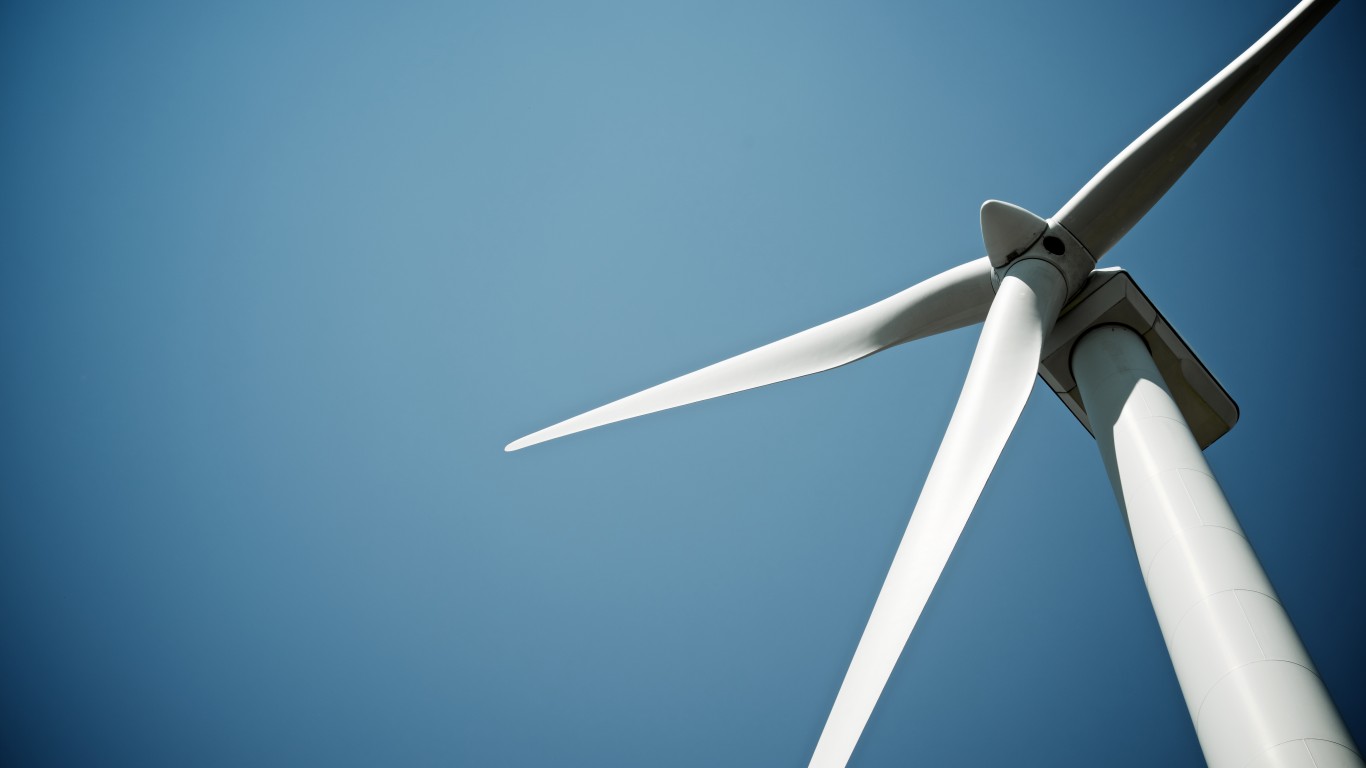
23. Highland Wind Energy Center
> Installed capacity, in megawatts: 502
> State: Iowa
As of 2020, Iowa had the highest wind generation capacity of any state but Texas, at nearly 11,000 MW. The state gets most of its energy from wind. The Highland Wind Energy Center, with its 218 turbines in the windy northwest corner of Iowa came online in 2015 as the largest wind farm in Iowa. It is also notable for the fact that it was the largest wind farm in the world to be completed in a single phase.
[in-text-ad]
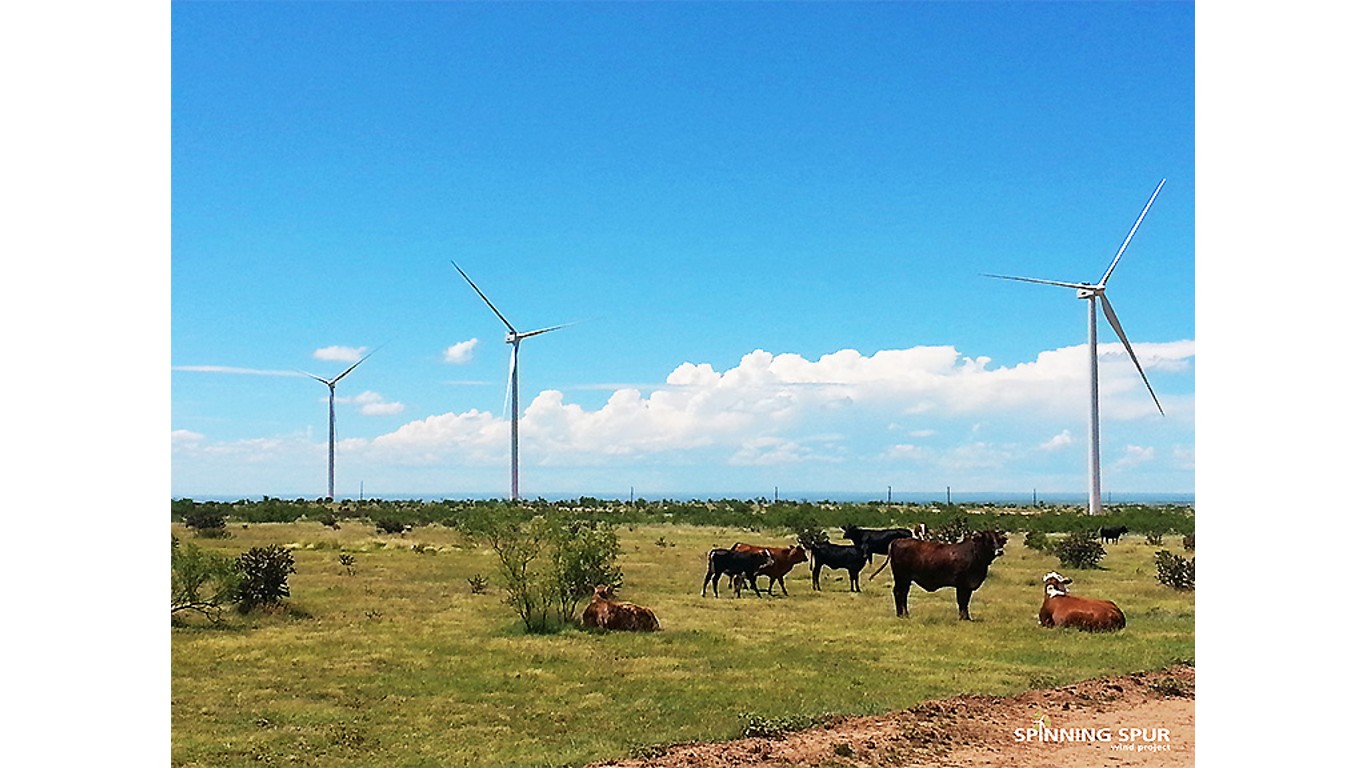
22. Spinning Spur Wind Farm
> Installed capacity, in megawatts: 516
> State: Texas
The Spinning Spur Wind Farm is an immense facility of 254 turbines spread over 70,000 acres in the northwest corner of the Texas panhandle. As large as it is, Spinning Spur is only the ninth largest wind energy facility in the state.
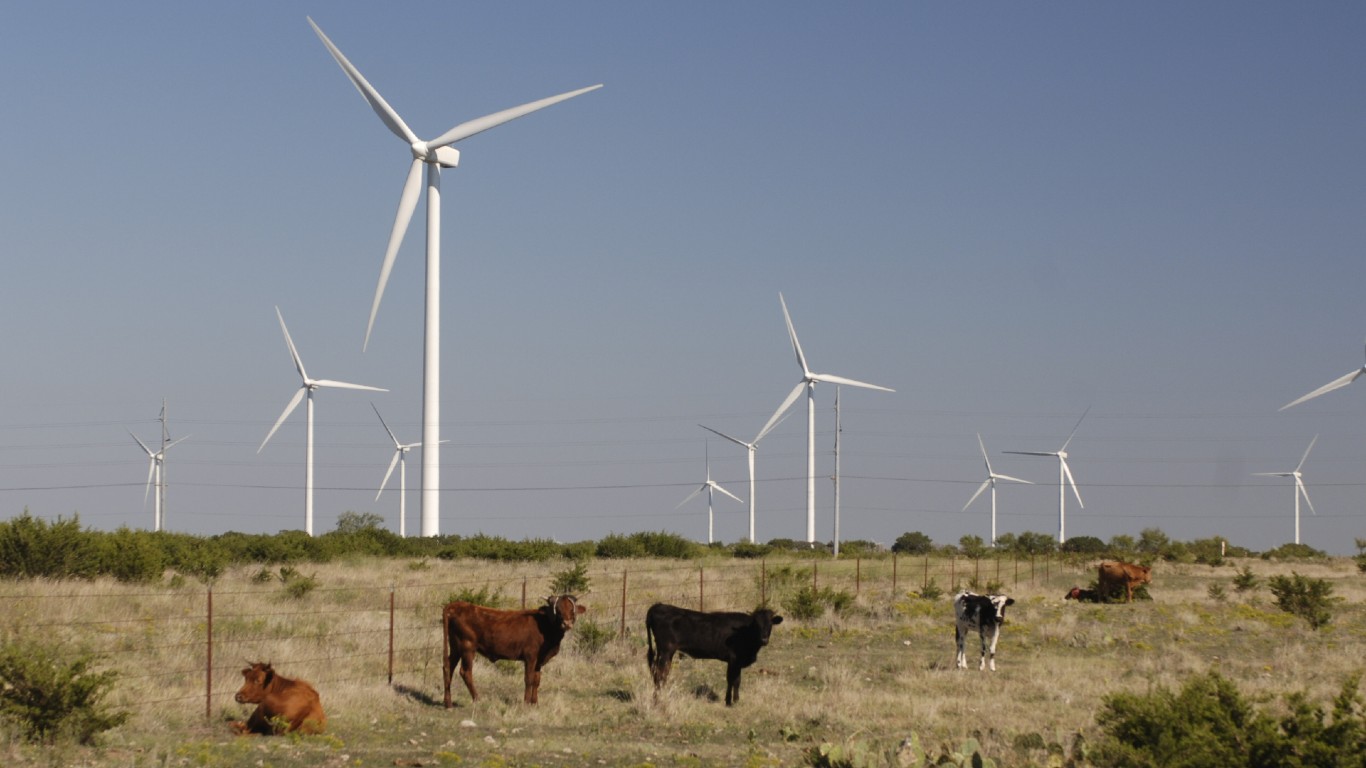
21. Buffalo Gap Wind Farm
> Installed capacity, in megawatts: 523
> State: Texas
The boom in Texas wind energy began in 2008, just as the Buffalo Gap Wind Farm completed its third phase, with 296 turbines, challenging the capacity of the State’s transmission lines. With a surplus of power and flagging prices, the state began a $4.9 billion project to increase transmission capacity by 18,000 MW, the largest investment in renewable energy in U.S. history.
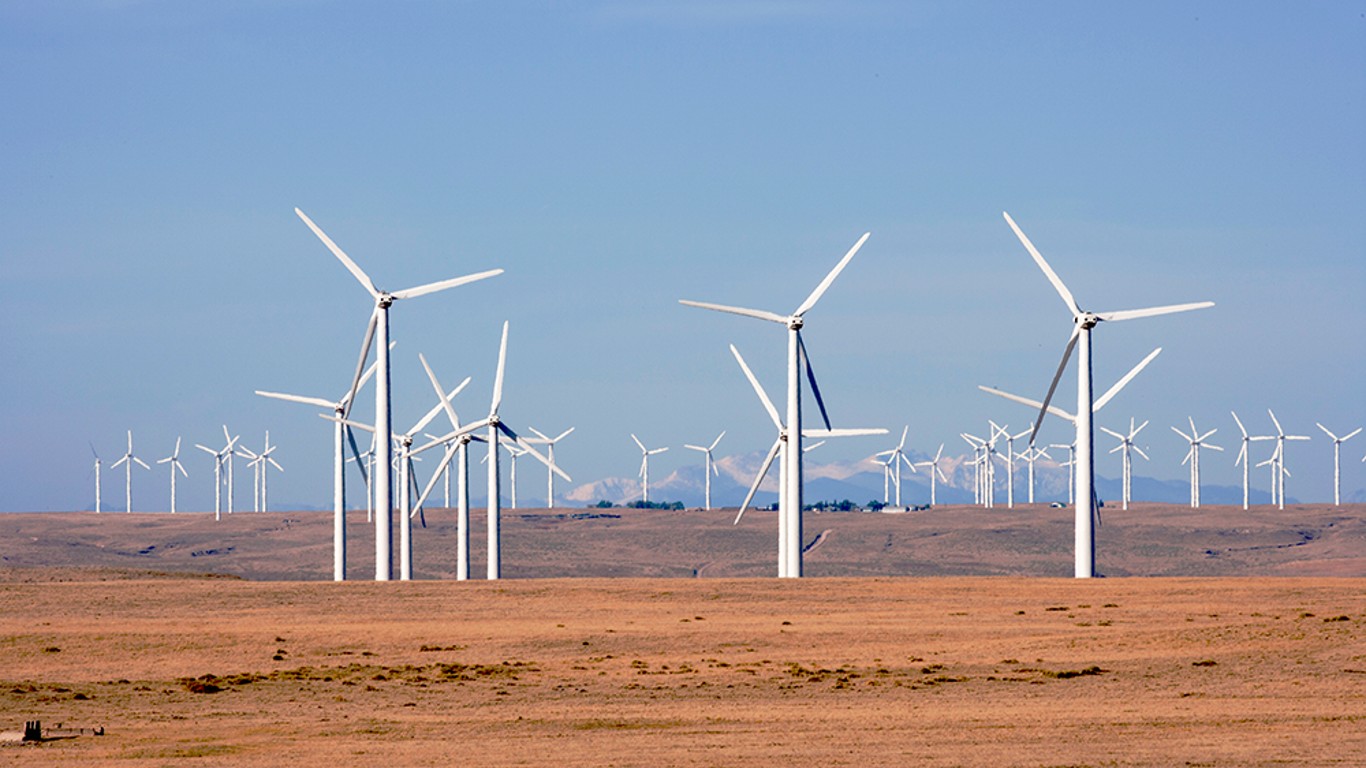
20. Cedar Creek Wind Farm
> Installed capacity, in megawatts: 550
> State: Colorado
Cedar Creek wind farm was built between 2007 and 2010 in the northeast corner of Colorado near the Wyoming and Nebraska borders and primarily serves Denver and a few rural areas. The power generated from its 397 turbines is sold to the Public Service Company of Colorado, a 140-year-old utility company that won the first contract for lighting the streets of Denver in 1885.
[in-text-ad-2]
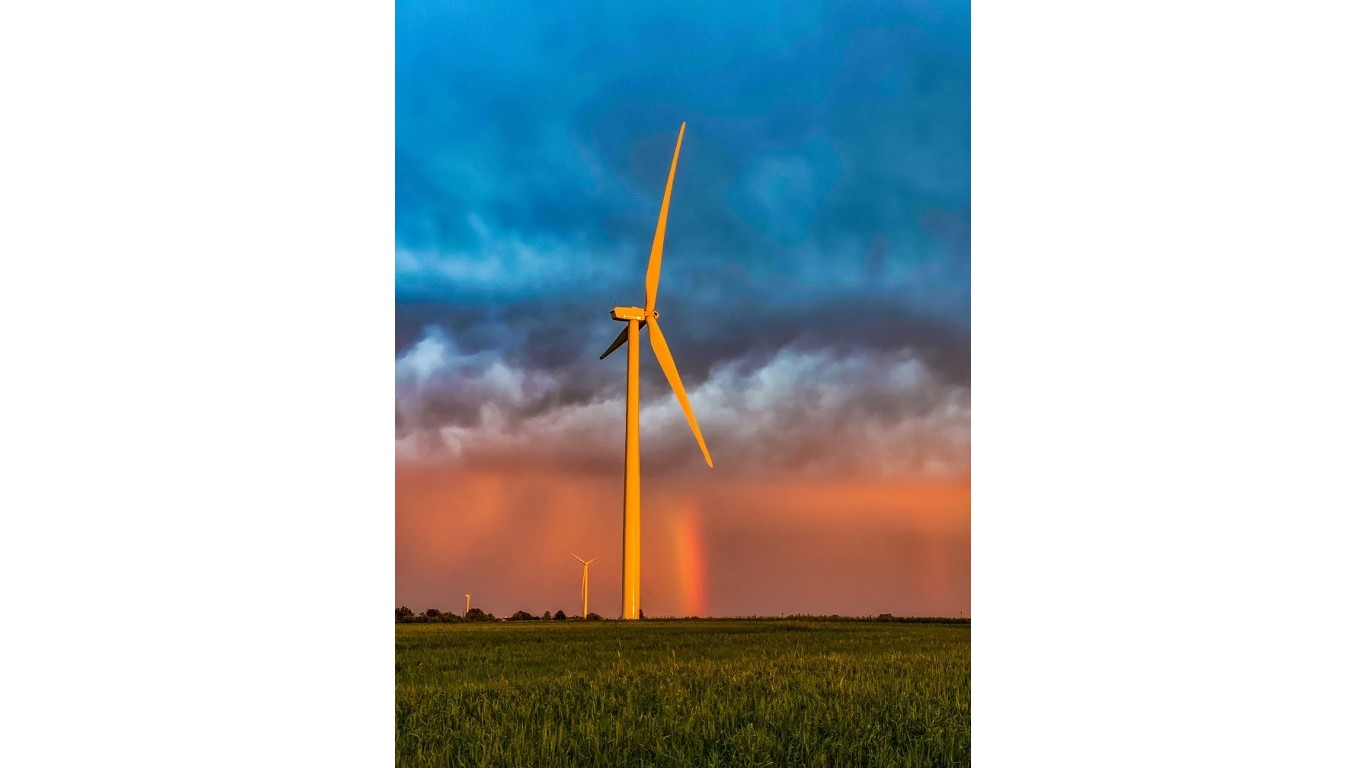
19. Flat Ridge Wind Farm
> Installed capacity, in megawatts: 570
> State: Kansas
With its second phase completed in 2012, the Flat Ridge Wind Farm, located near the Oklahoma border, became the largest wind generation facility in Kansas. It has since been surpassed by Cimarron Bend Wind Farm, with a capacity that was expanded to 599 MW in 2020.
18. Altamont Pass Wind Farm
> Installed capacity, in megawatts: 576
> State: California
One of the oldest windfarms in the world, the Altamont Pass Wind Farm may also be the most deadly. Hundreds of small windmills on dozens of small wind farms were erected in northern California’s Bay area in the early 1980s. At first, the windmills were a tourist draw, but later, as their numbers grew, they were considered a nuisance and an eyesore. The low profile turbines were also killing thousands of birds, including dozens of golden eagles.
In this century, wind production at Altamont Pass has been consolidated and repowered into five constituent farms. Older turbines have been coming down or retrofitted, and new, modern ones have been installed. In 2015, $2.5 million was set aside for raptor habitat restoration.
[in-text-ad]
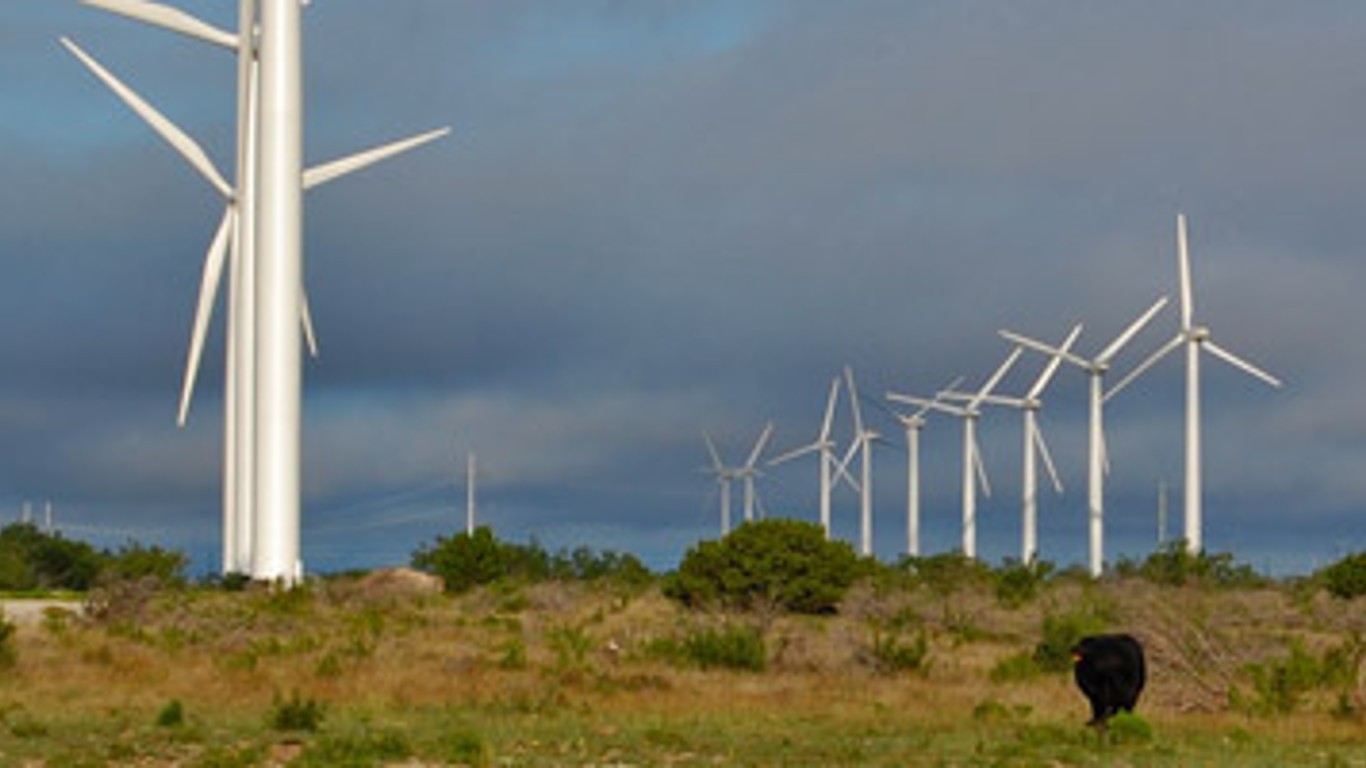
17. Sweetwater Wind Farm
> Installed capacity, in megawatts: 585
> State: Texas
Sweetwater Wind Farm was built in three phases early in the century between 2003 and 2007, before the wind generation boom of 2008. The aging facility underwent repowering in 2017 and 2020 with its major components replaced with larger, more efficient technology. The legacy of the upgrades is two immense turbine blade graveyards where blades have been cut into thirds and stacked in open fields. The owner of the blade dumps, Global Fiberglass Solutions, is said to have a plan to recycle the blades into usable materials.
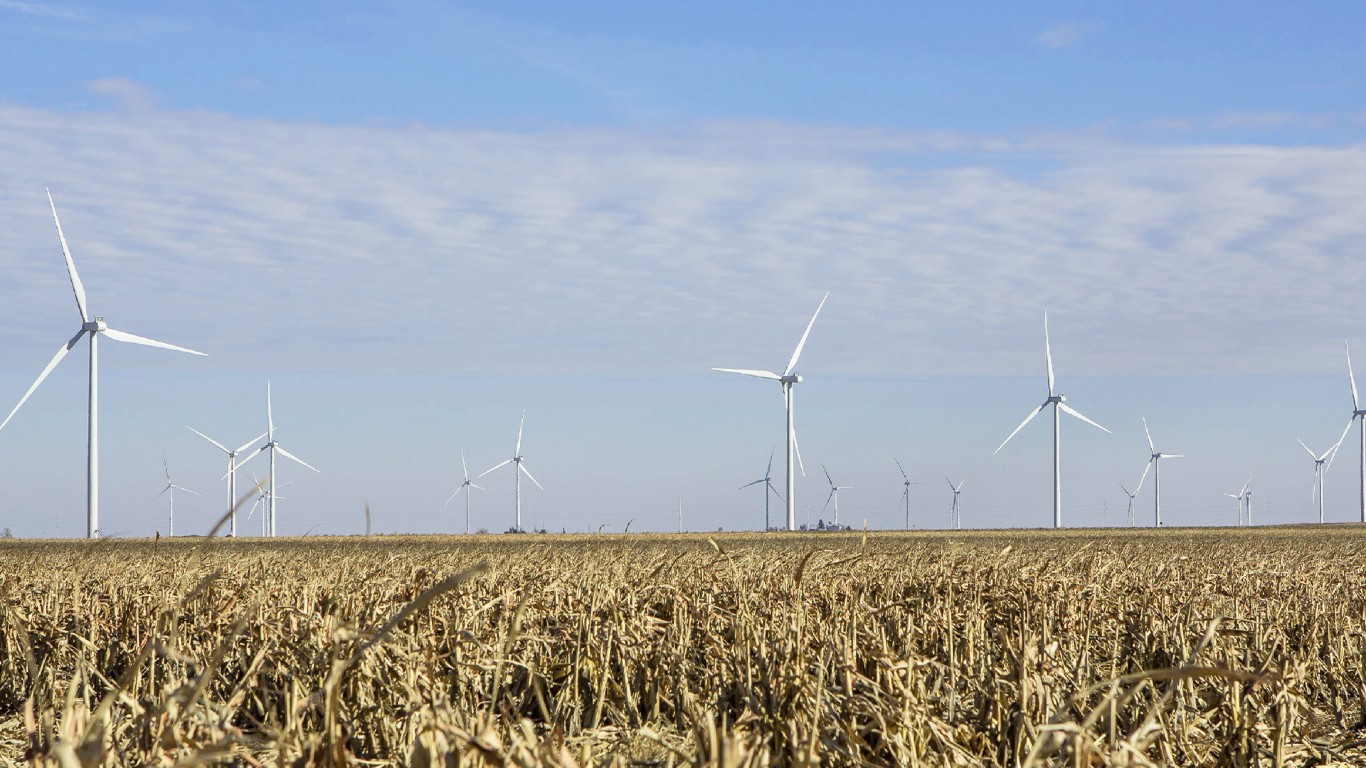
16. Cimarron Bend Wind Farm
> Installed capacity, in megawatts: 599
> State: Kansas
Kansas is second only to Texas in its reliable wind power potential, and as of 2019, the state was getting 41% of its power from wind. After the first two phases of the Cimarron Bend Wind farm were built in 2016 and 2017, it became the second largest wind facility in the state. With the completion of the third phase in 2020, it is now the largest. At the beginning of 2020, Kansas had almost 6,900 MW of capacity from its wind turbines.
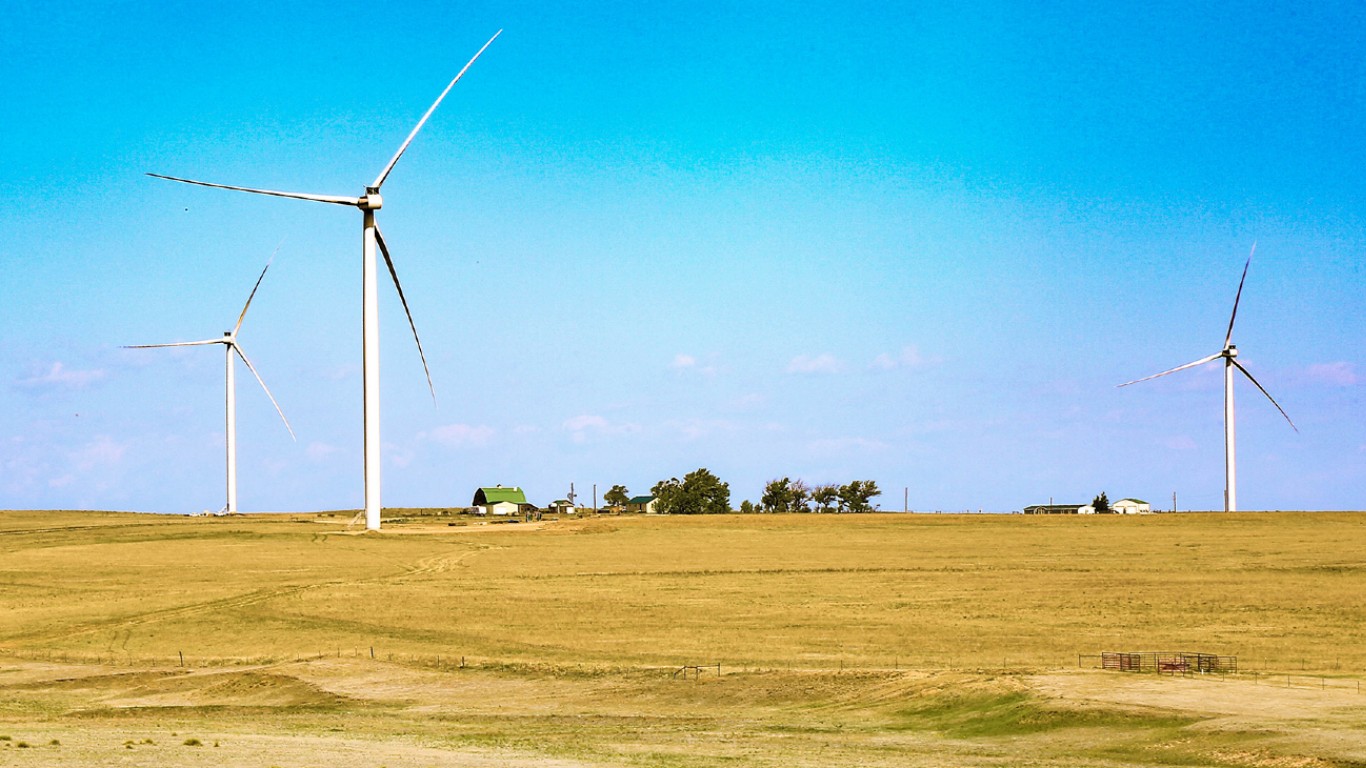
15. Rush Creek Wind Project
> Installed capacity, in megawatts: 600
> State: Colorado
Spanning across four counties in the plains of eastern Colorado, the Rush Creek Wind Project was built in 2017 and 2018 using mostly Colorado-made components. But the economic benefits of the facility go well beyond its locally manufactured parts and the employment provided during construction. A study conducted by the Natural Renewable Energy Laboratory measured the farm’s impact on the local economy, finding that, over the course of the anticipated 25 year life of the facility, it will support 180 long-term jobs, $20 million in annual GDP, $45 million in landowner lease payments, and $62.5 million in property taxes.
[in-text-ad-2]
14. Fowler Ridge Wind Farm
> Installed capacity, in megawatts: 600
> State: Indiana
In 2008, Fowler Ridge Wind Farm, located in Fowler, Indiana, 90 miles northwest of Indianapolis, became the second wind energy facility in the state. In 2020, Texas-based BP Wind Energy Inc. purchased all the turbines in Fowler Ridge 1 from Dominion Energy, comprising 162 of the farm’s 355 turbines. BP now operates 10 wind farms in six states.
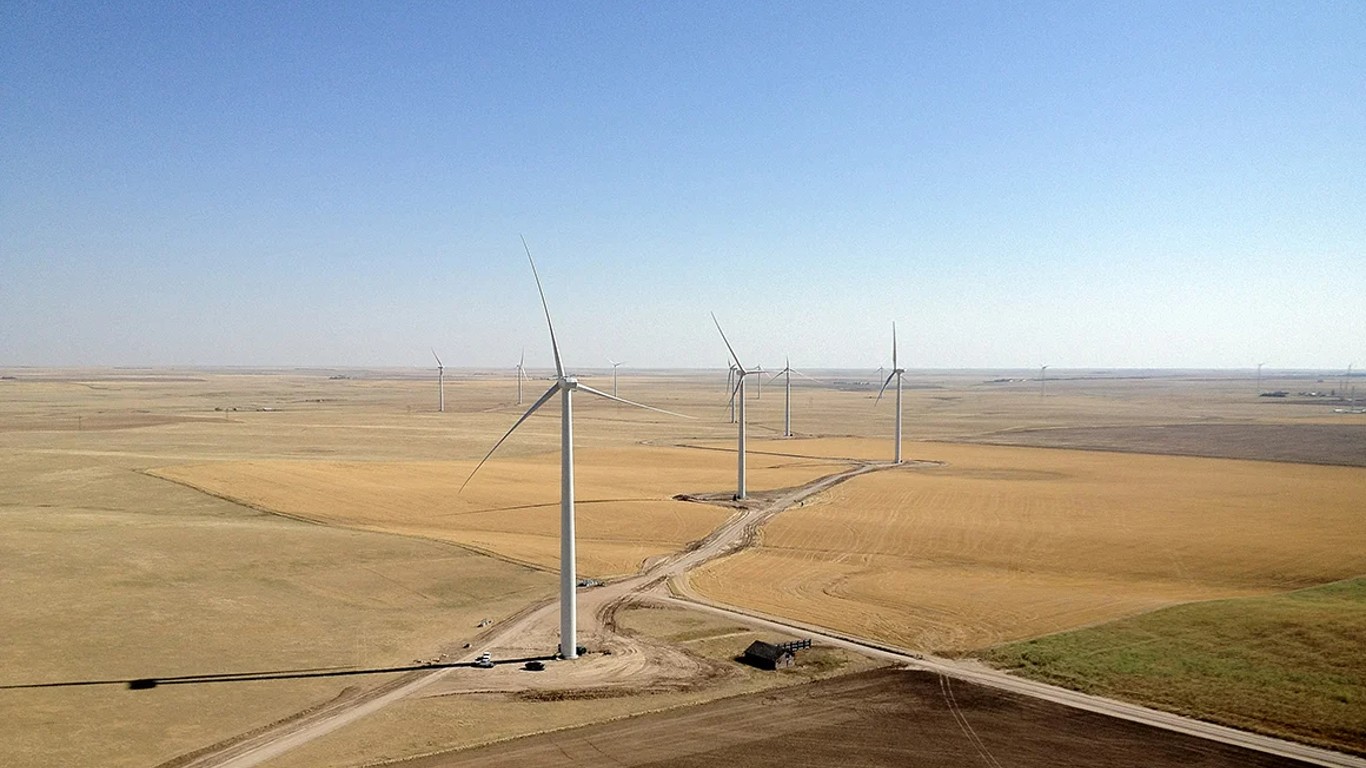
13. Limon Wind Energy Center
> Installed capacity, in megawatts: 601
> State: Colorado
Located 80 miles east of Denver, the Limon Wind Energy Center was the largest wind farm in Colorado at the time of its completion in 2014. Stretching over 104,000 acres, its 368 GE turbines produce enough electricity to power 114,000 homes.
[in-text-ad]
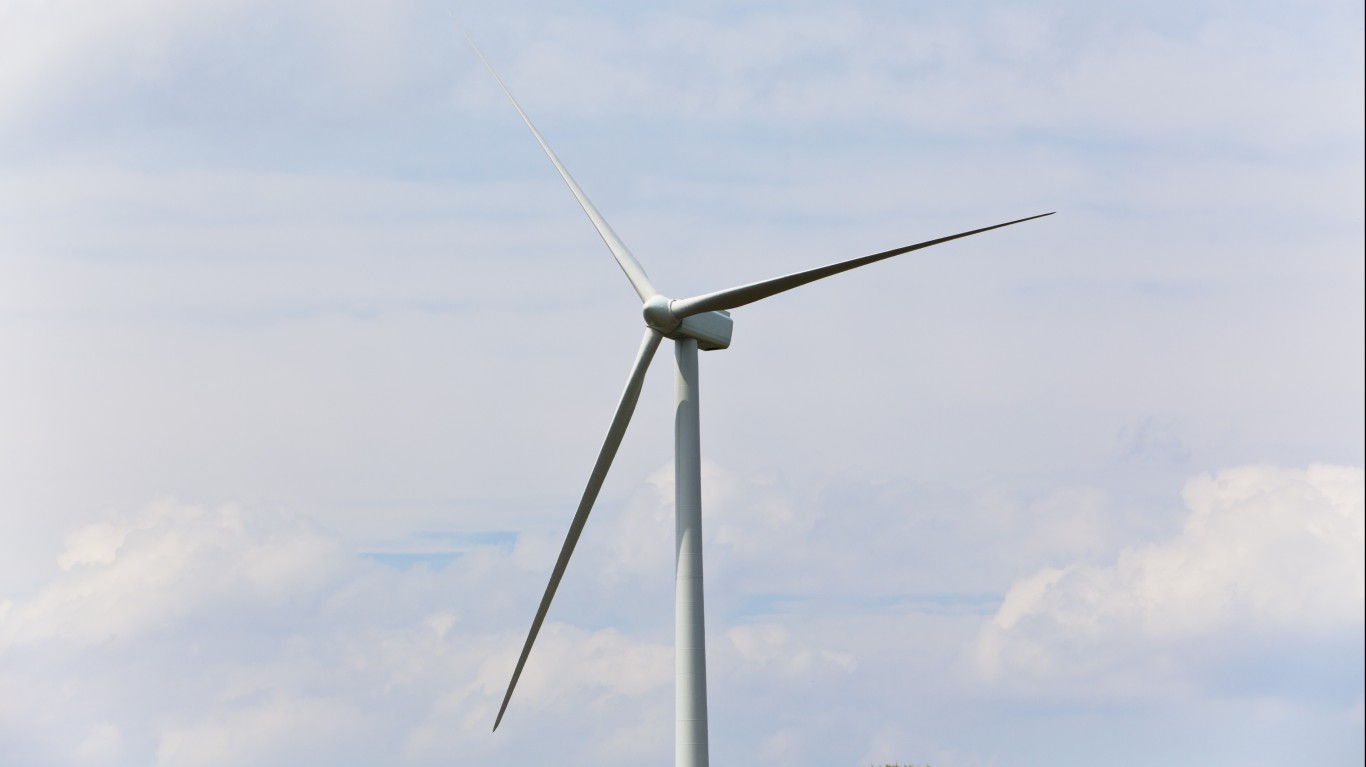
12. Peñascal Wind Farm
> Installed capacity, in megawatts: 605
> State: Texas
Construction of the Peñascal Wind Farm, the first to be built on the coast of Texas, began in 2008 and was completed in 2015. Early environmental assessments led to a conclusion that the farm would have negligible effect on fish and wildlife. Nevertheless, the farm has an radar system that shuts down the facility’s 269 turbines when large flocks of migrating birds are flying at times of poor visibility.
11. San Gorgonio Pass Wind Farm
> Installed capacity, in megawatts: 619
> State: California
Located between two mountain ranges, the San Gorgonio Pass is essentially a wind tunnel. With reliable wind speeds between 15 and 20 miles an hour, in the early days of wind power it was viewed as a perfect location for a wind farm from a geographical point of view. Otherwise, it was not. Located near Palm Springs and Coachella, the early turbines springing up across the landscape in the 1980s were not a welcome sight. Since then, they have gained acceptance as a kind of new environmental aesthetic and as a revenue generator.
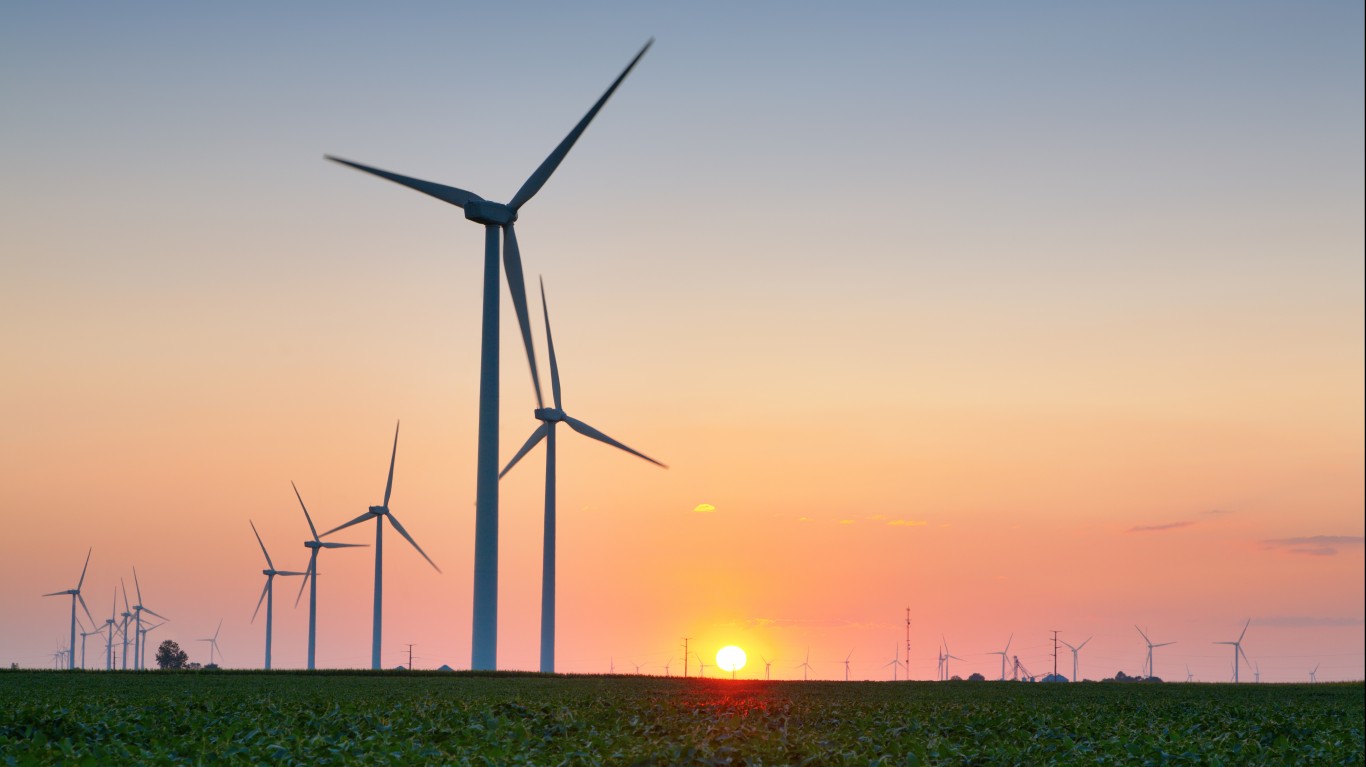
10. Capricorn Ridge Wind Farm
> Installed capacity, in megawatts: 662
> State: Texas
Capricorn Ridge Wind Farm in west Texas is owned and operated by a subsidiary of NextEra Wind Resources, the nation’s largest wind energy company. It is in a Competitive Renewable Energy Zone, created to bring energy from the high wind mesa regions of Texas to areas of denser population in east and central Texas, adding resiliency and reliability to the state’s challenged power grid.
[in-text-ad-2]
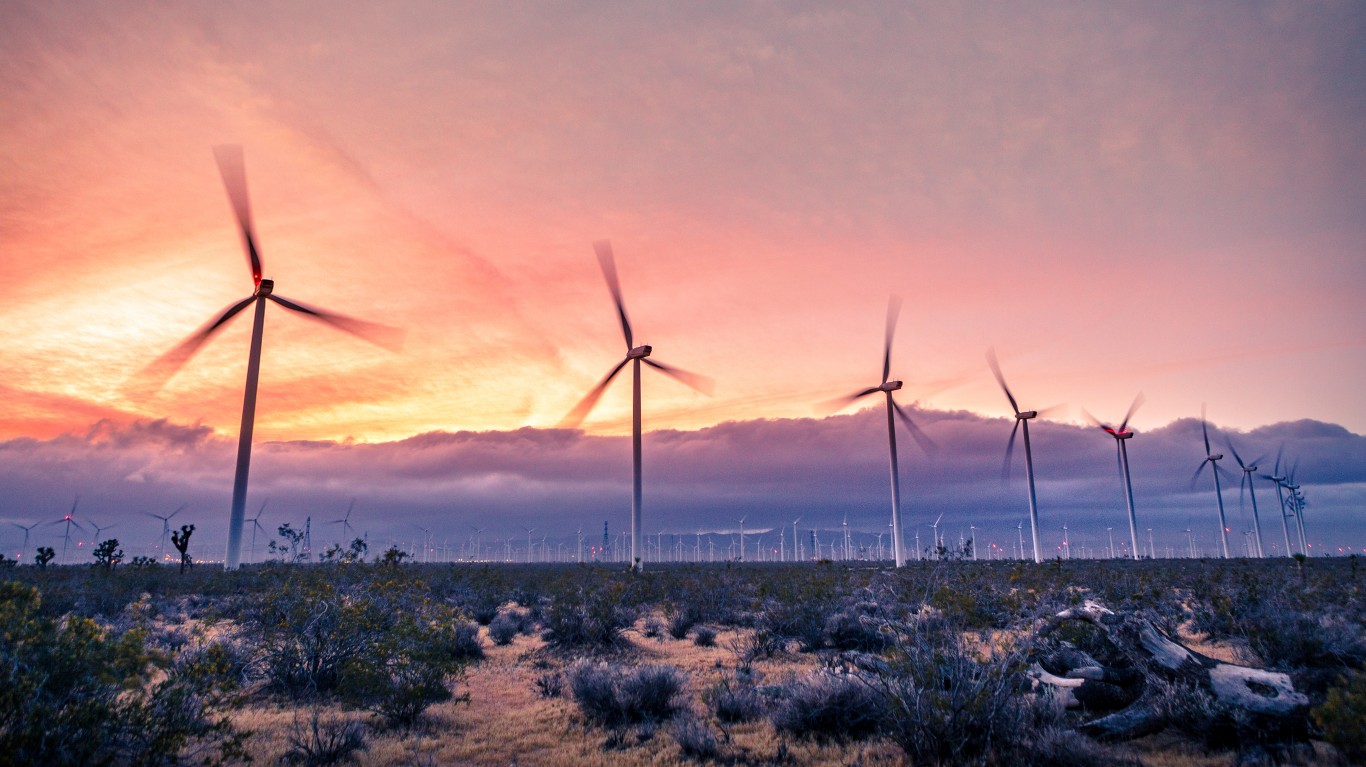
9. Tehachapi Pass Wind Farm
> Installed capacity, in megawatts: 690
> State: California
The Tehachapi Pass Wind Farm was one of the first large-scale wind farms in the world. Begun in the 1980s, the farm was a trial ground for early turbines, many of which needed to be replaced early on due to design flaws. Even the replacement models were soon outdated as experience was gained and technology improved. The older turbines on the farm produce kilowatts of power, while the newer ones produce megawatts.
8. Horse Hollow Wind Energy Center
> Installed capacity, in megawatts: 736
> State: Texas
Between 2006 and 2009, Horse Hollow Wind Energy Center was the largest wind farm in the world, at a time when the sight of turbines stretching across miles of landscape was a relatively new and noteworthy development. As such, the wind farm was the subject of two nuisance lawsuits objecting to the visual impacts and the sound of the turbines. The farm won, heralding an era of rapid growth in the Texas wind industry.
[in-text-ad]
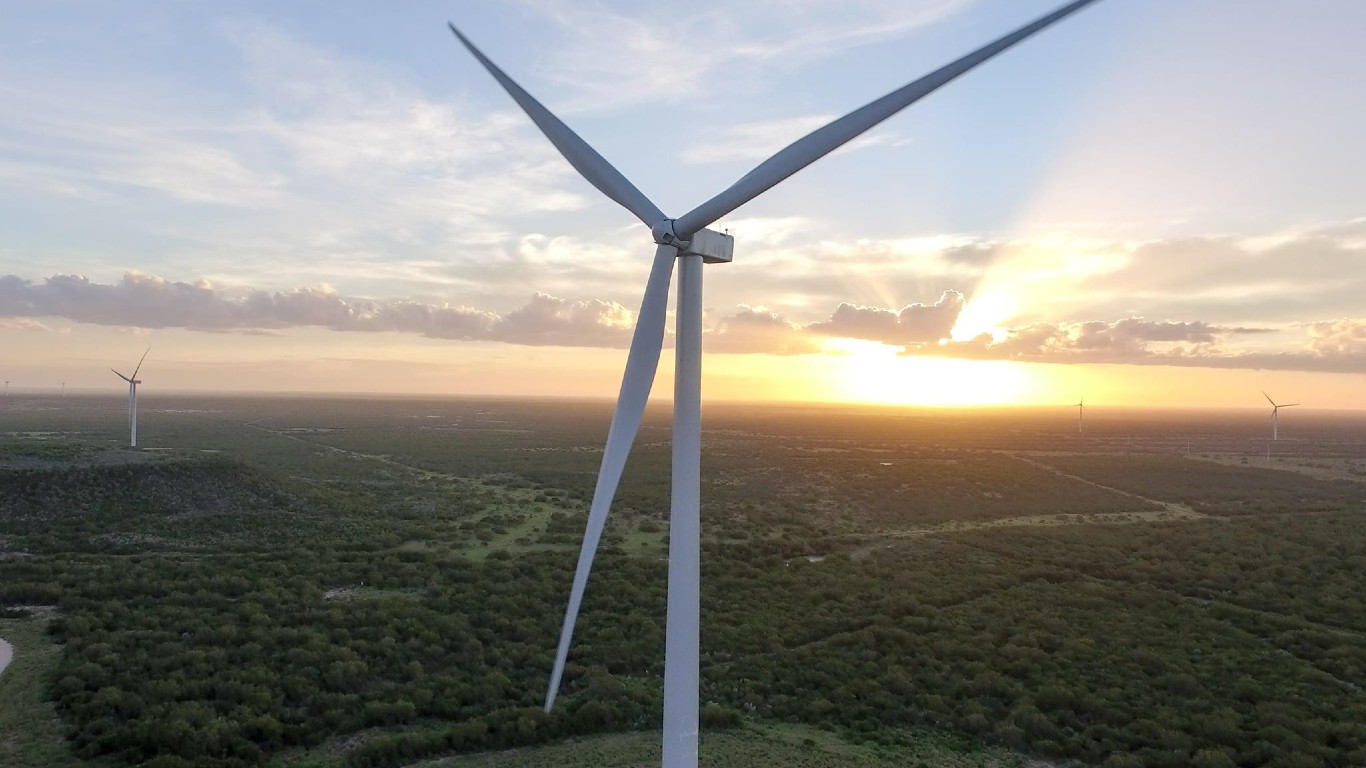
7. Javelina Wind Energy Center
> Installed capacity, in megawatts: 749
> State: Texas
Because of its wind availability and abundant unencumbered land, southern Texas near Laredo is host to a contiguous grouping of wind farms, ironically in a region also notable for its oil and gas production. Javelina, which began construction in 2014, is the largest in the grouping of wind generators.
6. Roscoe Wind Project
> Installed capacity, in megawatts: 781
> State: Texas
At the time of its completion in 2009, the Roscoe Wind Project near Abilene, Texas, was the largest wind farm in the world, with a capacity of 781.5 MW, overtaking its competitor and previous record holder, Horse Hollow Wind Energy Center, another Texas giant. Its 627 turbines were built at the rate of one a day beginning in 2007, standing 900 feet apart and ranging in height from 350 to 415 feet.
5. Meadow Lake Wind Farm
> Installed capacity, in megawatts: 801
> State: Indiana
Texas-based EDP Renewables Meadow Lake Wind Farm is located in northwest Indiana communities. The farm was built in six phases between 2009 and 2019. By the time of its completion, EDP reported that it had made $51.3 million in lease payments to landowners. Its 801 MW output is equivalent to the energy consumption of 203,000 homes.
[in-text-ad-2]
4. Shepherds Flat Wind Farm
> Installed capacity, in megawatts: 845
> State: Oregon
Shepherds Flat Wind farm in eastern Oregon was completed in 2012 by Caithness Energy at a cost of $2 billion, employing 338 turbines and producing enough electricity to serve 235,000 homes. The plant, in need of upgrades, recently changed hands for $700 million. The new owner, Brookfield Renewable Partners, plans to extend the blades of the turbines and otherwise bring the technology up to date to increase capacity by 25%.
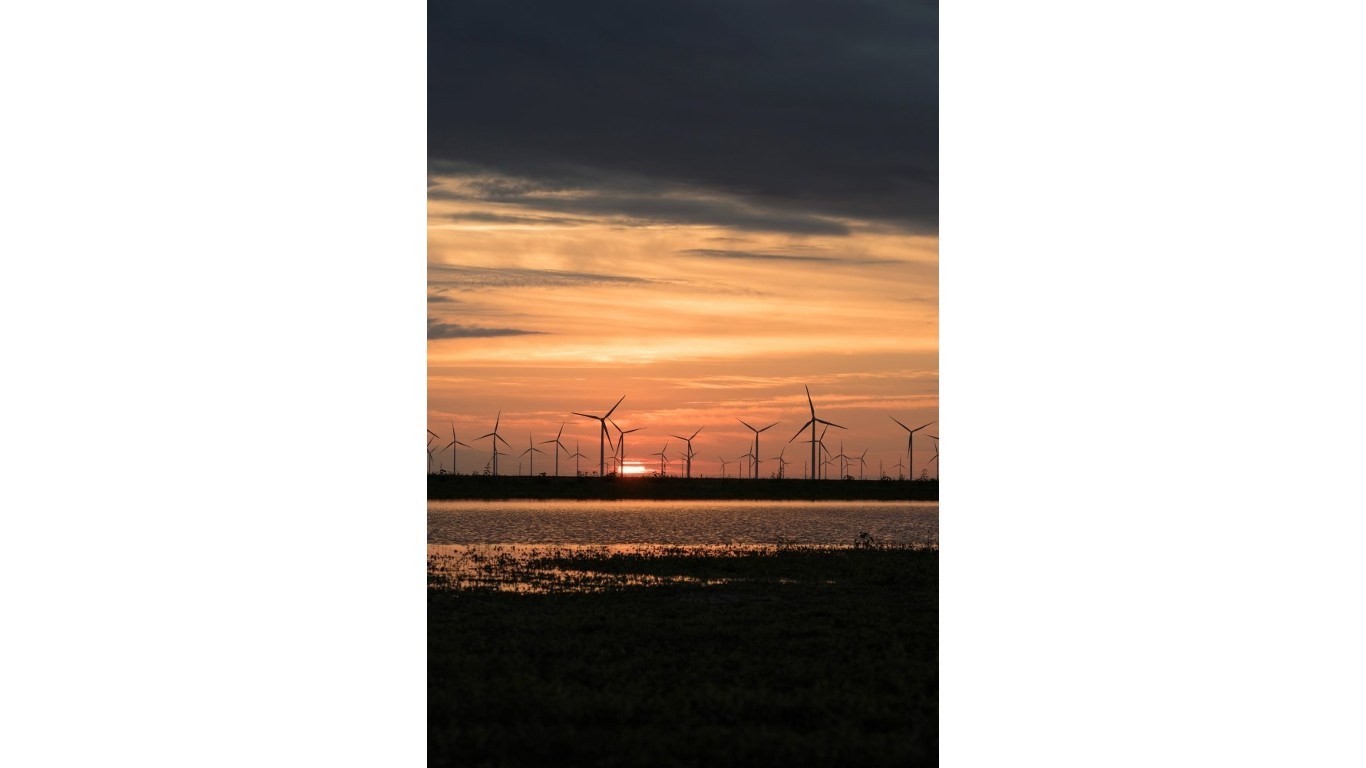
3. Los Vientos Wind Farm
> Installed capacity, in megawatts: 900
> State: Texas
The Los Vientos Wind Farm in south Texas near the Rio Grande River was built in five phases between 2012 and 2016 for Duke Energy Renewables. To reduce the deaths of bats flying through wind farms, Duke Energy worked with the University of Texas and other partners on a study at the farm, which led to the creation of an ultrasound system that can reduce bat deaths by 50%.
[in-text-ad]
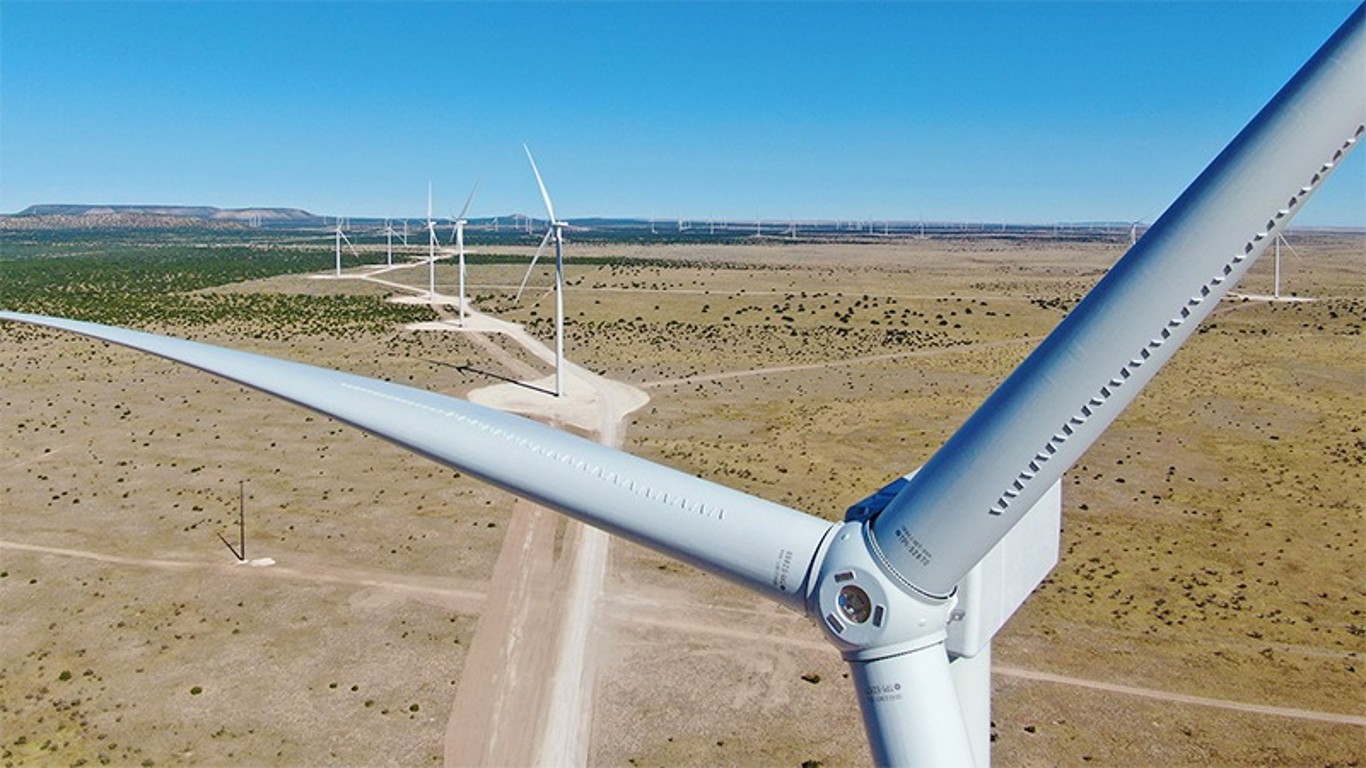
2. Western Spirit
> Installed capacity, in megawatts: 1,050
> State: New Mexico
The Western Spirit Wind Project, a combination of four wind farms in central New Mexico, began full construction in January 2021, making it the largest “single phase” wind farm in the country. It consists of 377 turbines spread across the lands of 40 different landowners and provides enough electricity to service 590,000 homes.
1. Alta Wind Energy Center I-XI
> Installed capacity, in megawatts: 1,548
> State: California
Located in the Tehachapi Mountains 100 miles north of Los Angeles, the Alta Wind Energy Center is the largest wind farm in the country and the third largest in the world. It was built in 11 phases beginning in 2010, with costs totalling nearly $3 billion. Its plan is to continue to expand to an anticipated capacity of 3000 MW.
Are You Still Paying With a Debit Card?
The average American spends $17,274 on debit cards a year, and it’s a HUGE mistake. First, debit cards don’t have the same fraud protections as credit cards. Once your money is gone, it’s gone. But more importantly you can actually get something back from this spending every time you swipe.
Issuers are handing out wild bonuses right now. With some you can earn up to 5% back on every purchase. That’s like getting a 5% discount on everything you buy!
Our top pick is kind of hard to imagine. Not only does it pay up to 5% back, it also includes a $200 cash back reward in the first six months, a 0% intro APR, and…. $0 annual fee. It’s quite literally free money for any one that uses a card regularly. Click here to learn more!
Flywheel Publishing has partnered with CardRatings to provide coverage of credit card products. Flywheel Publishing and CardRatings may receive a commission from card issuers.
Thank you for reading! Have some feedback for us?
Contact the 24/7 Wall St. editorial team.
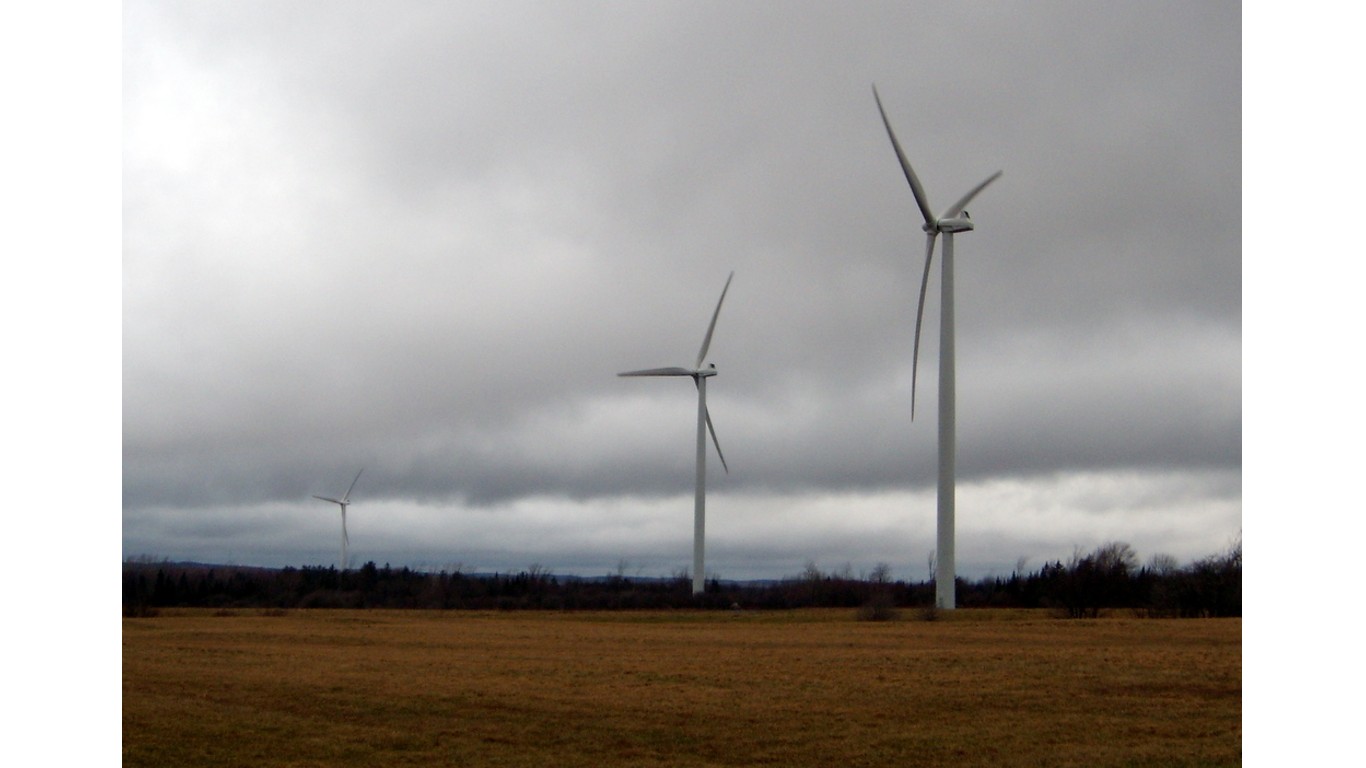
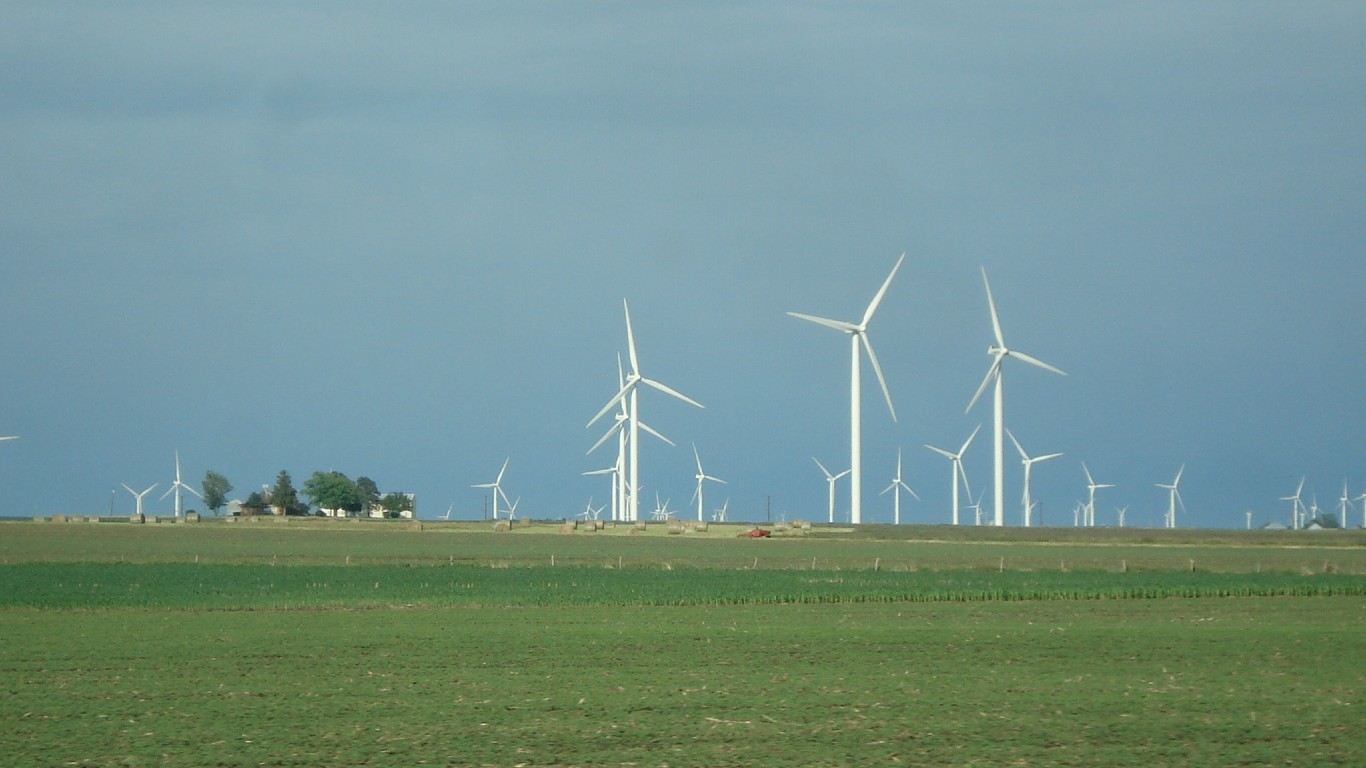
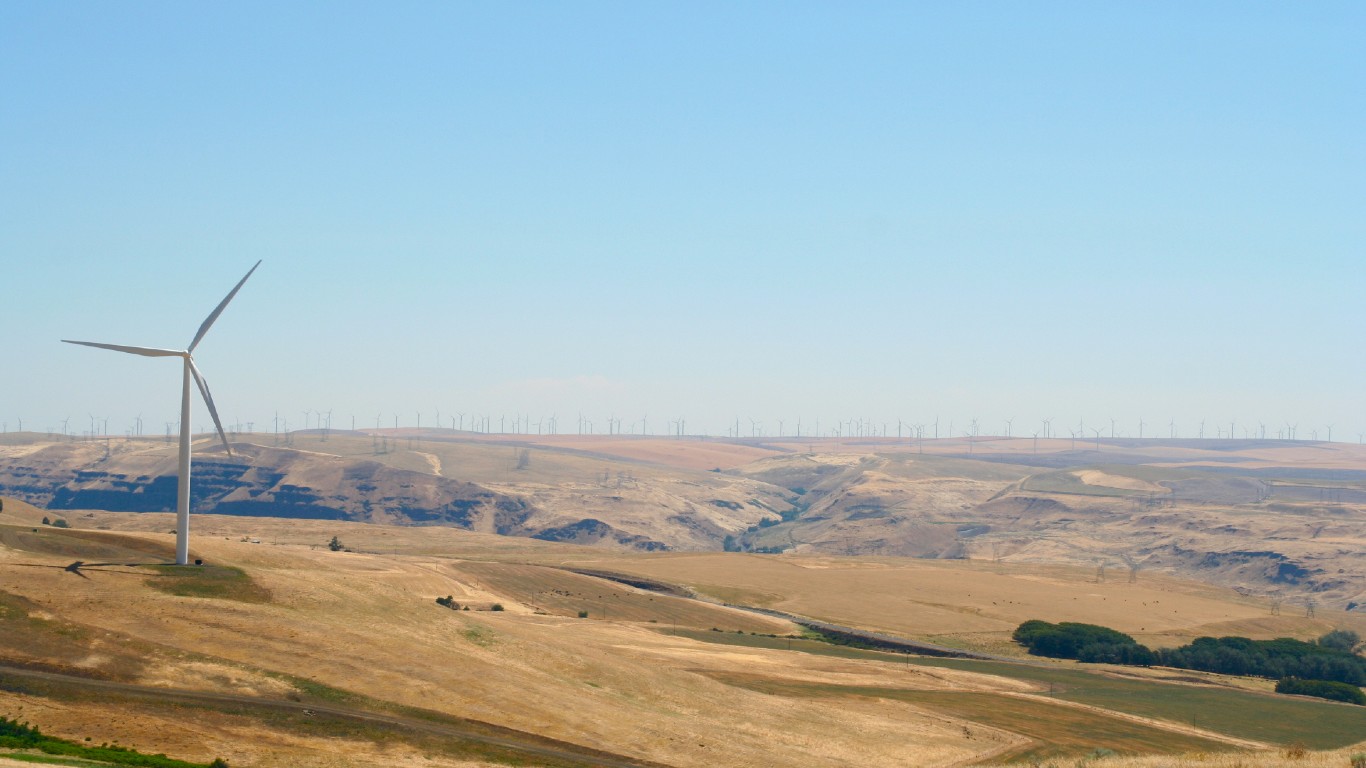
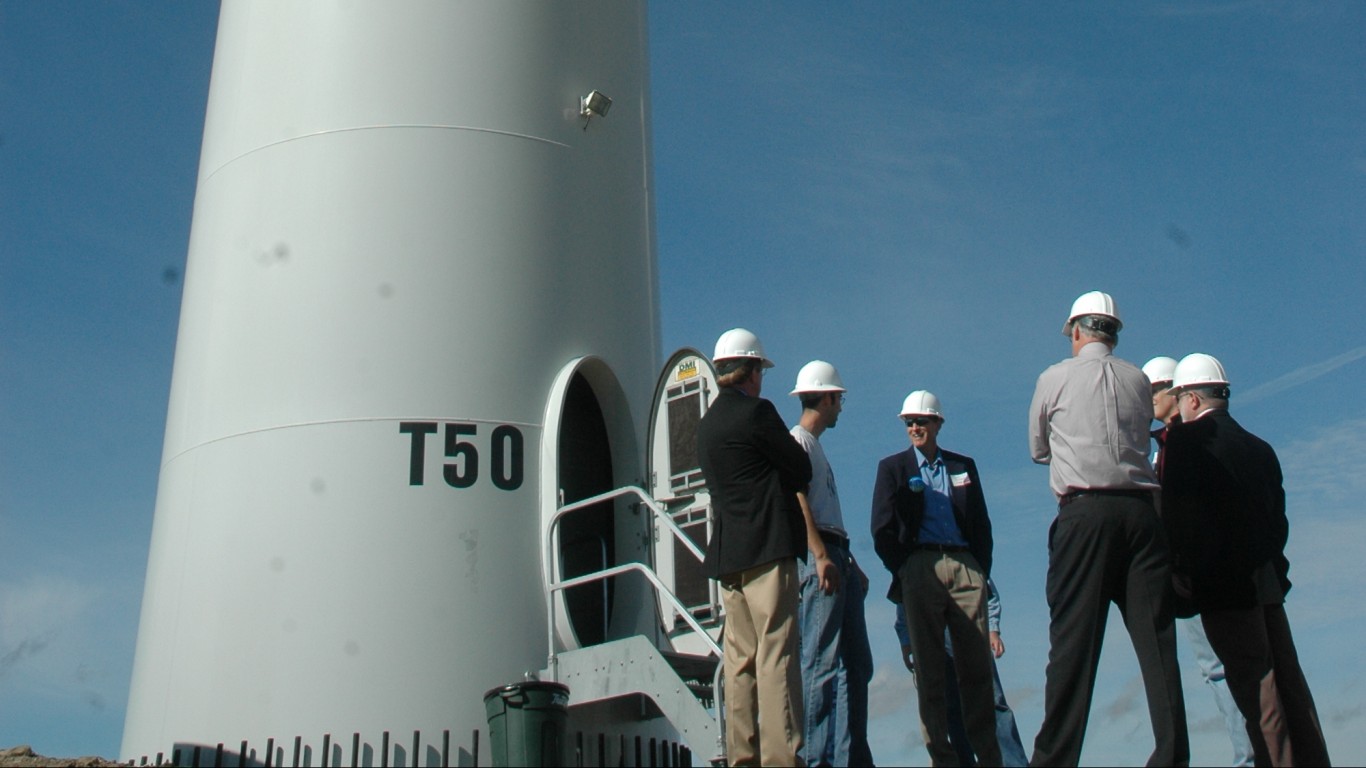
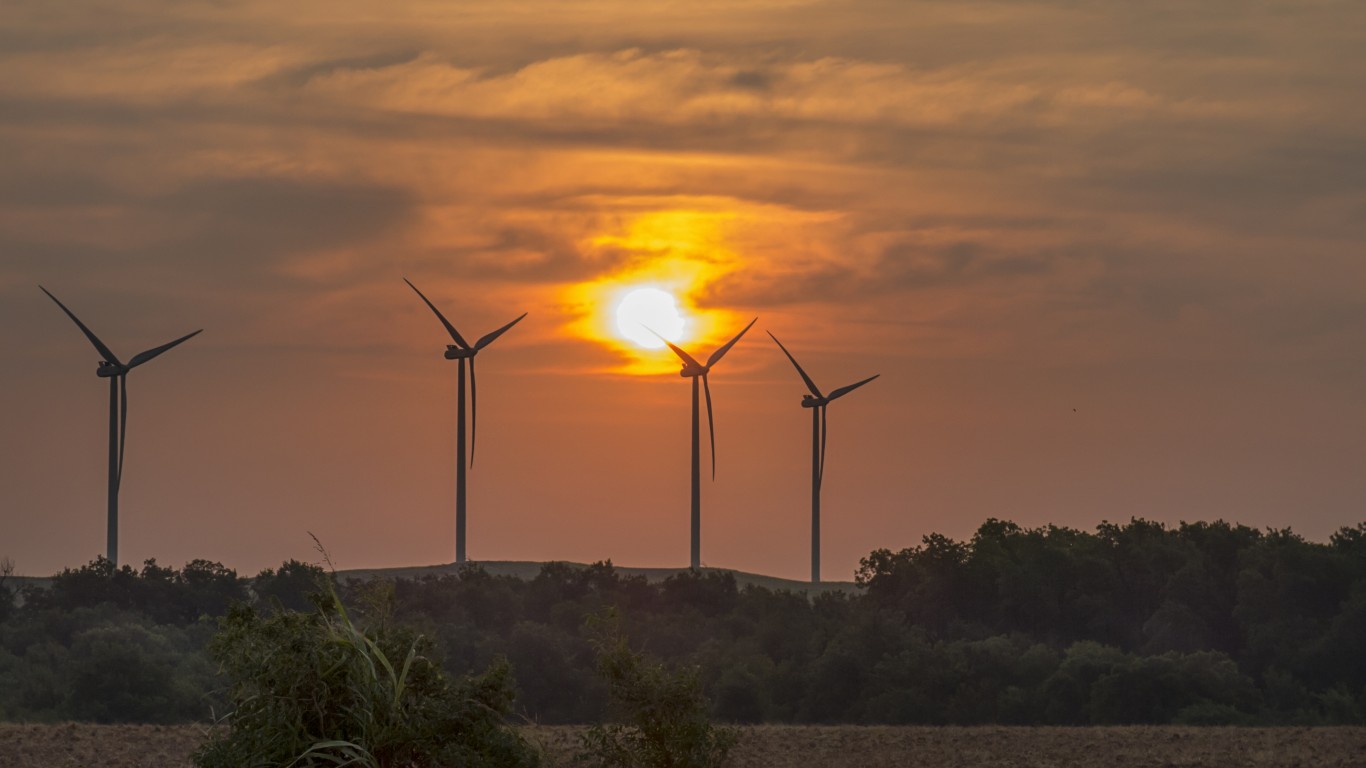
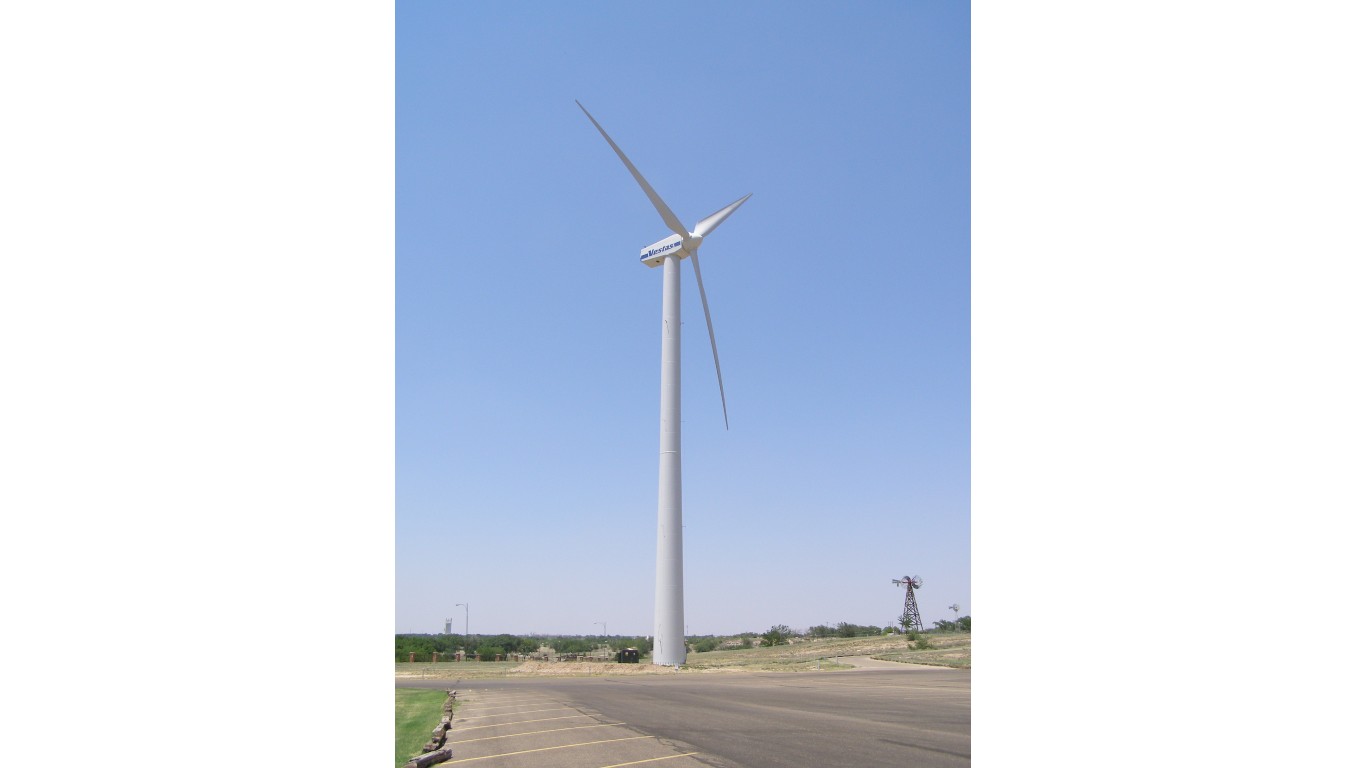
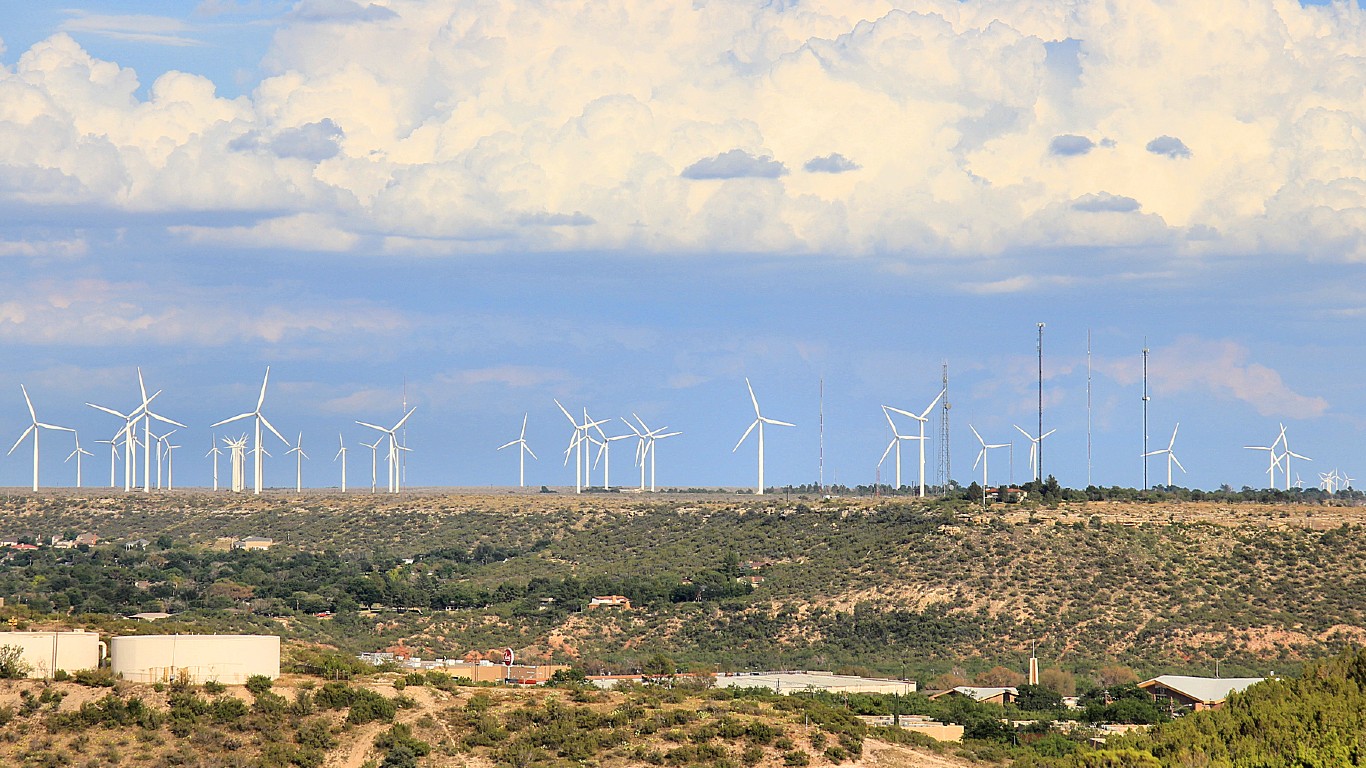
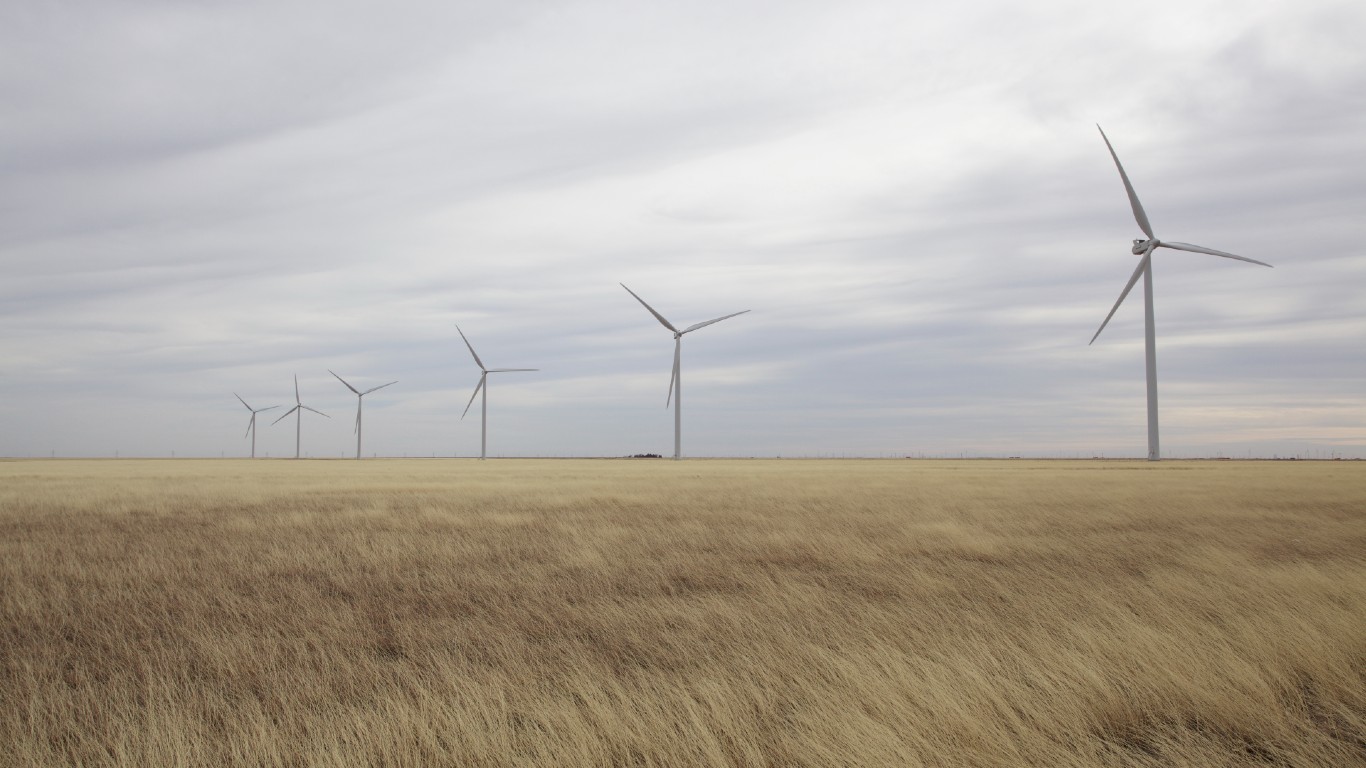
 24/7 Wall St.
24/7 Wall St.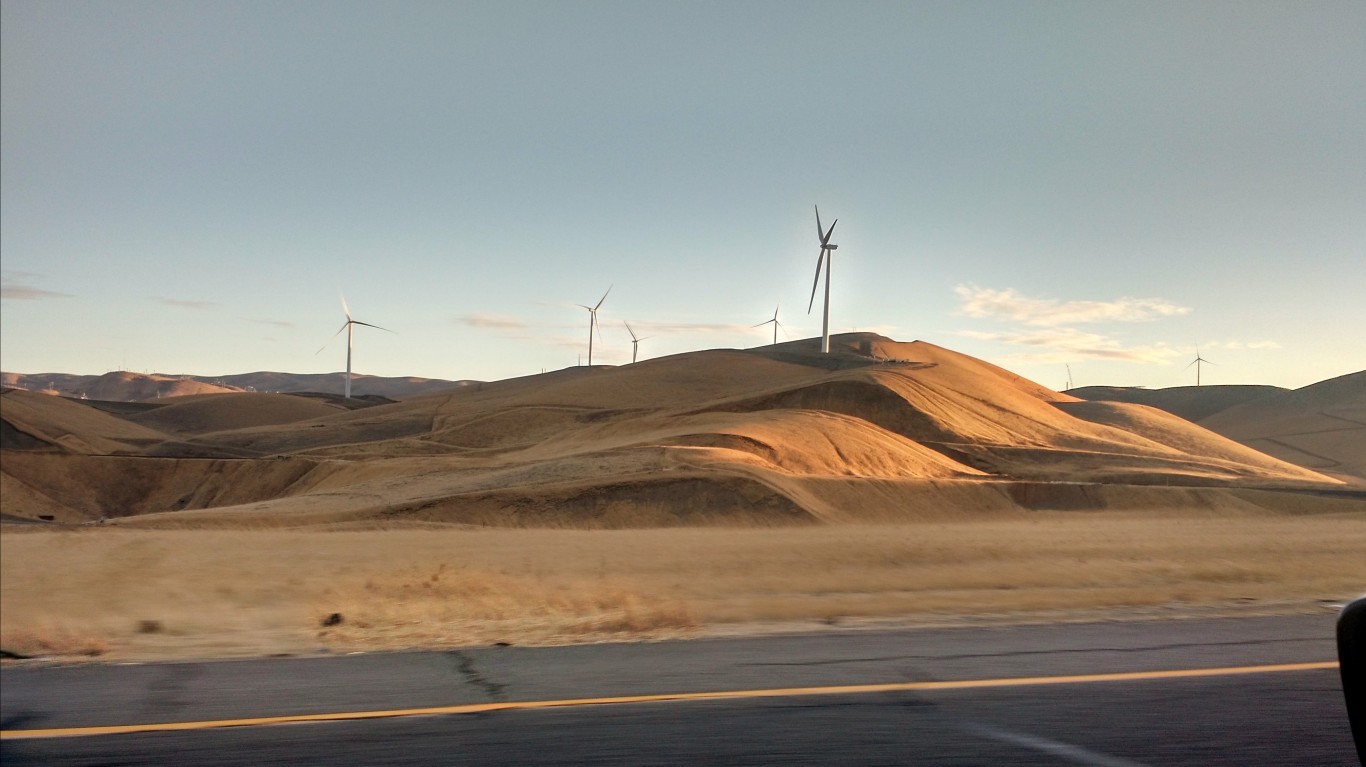
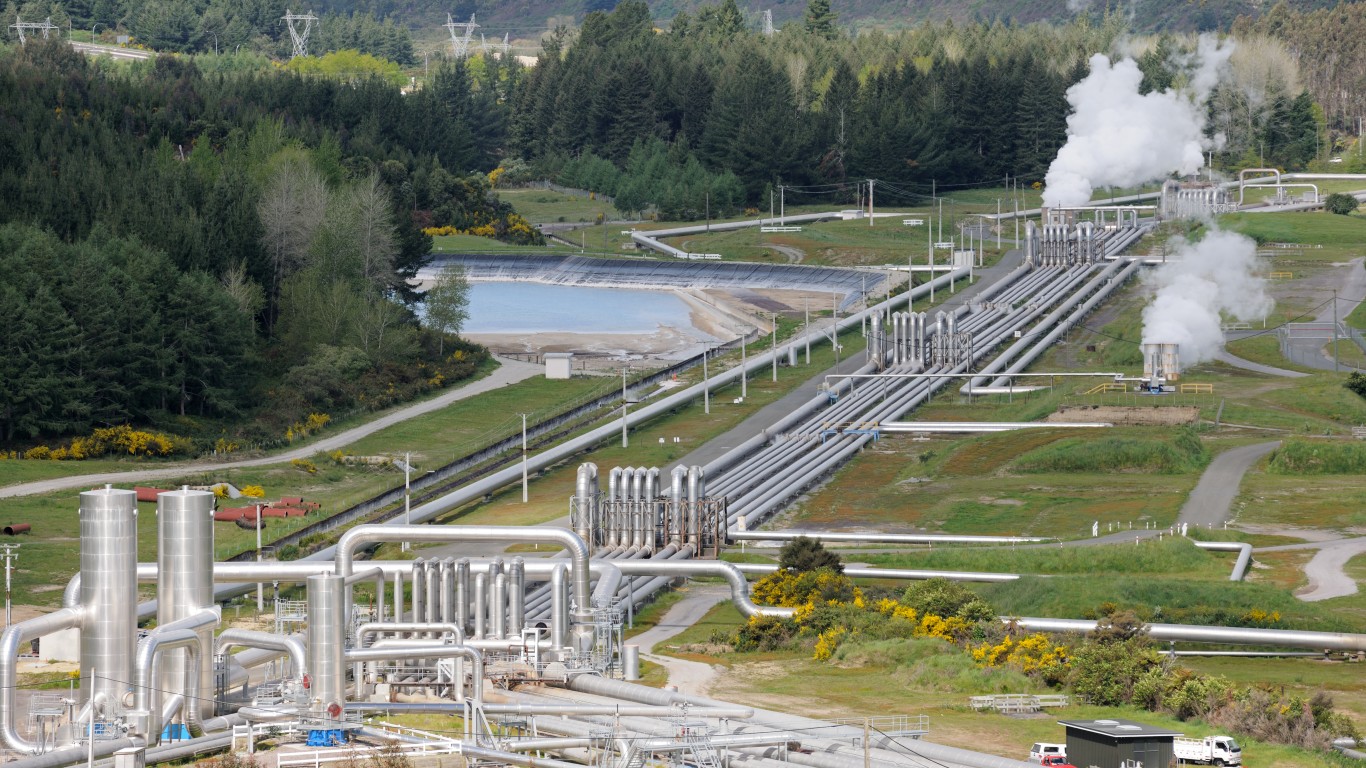 24/7 Wall St.
24/7 Wall St.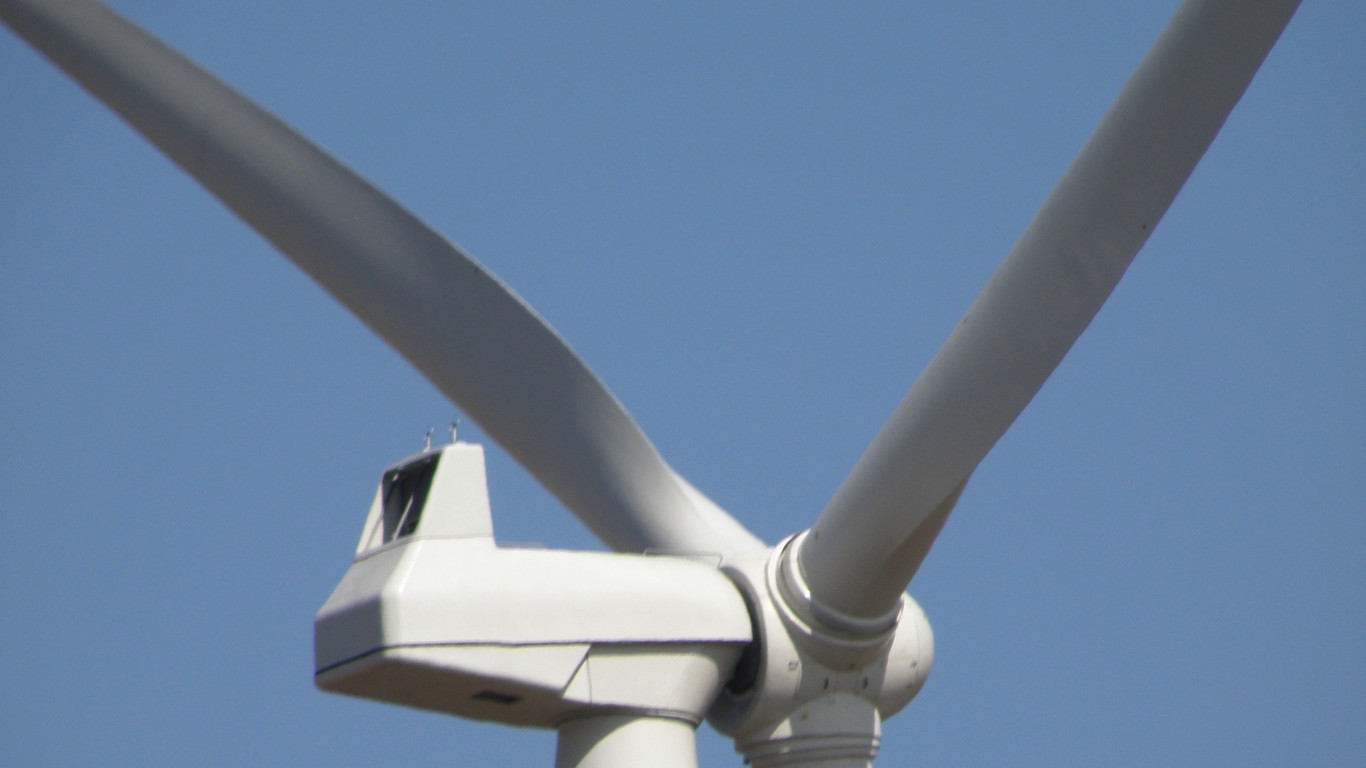
 24/7 Wall St.
24/7 Wall St.